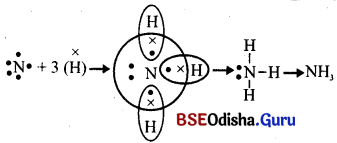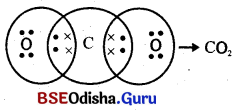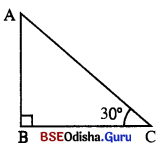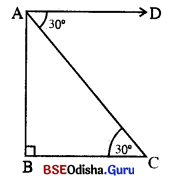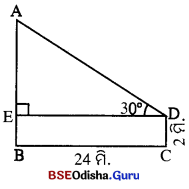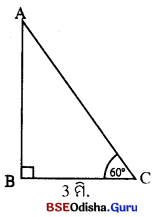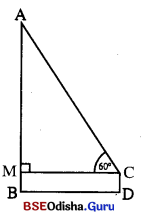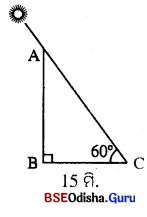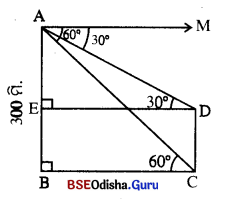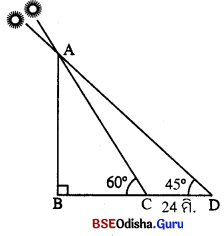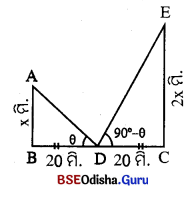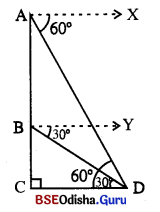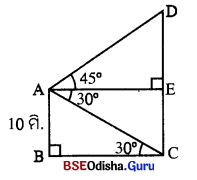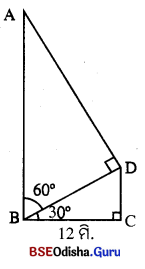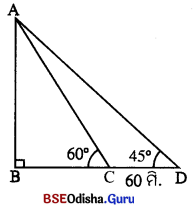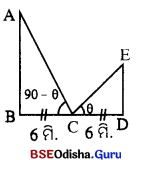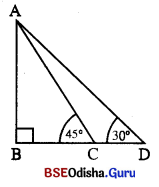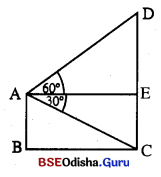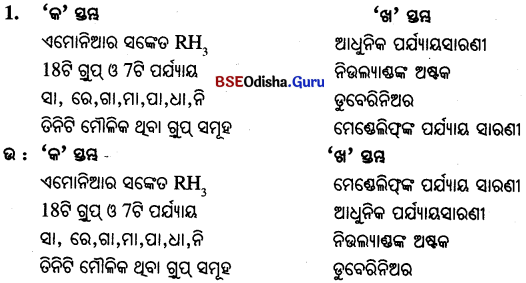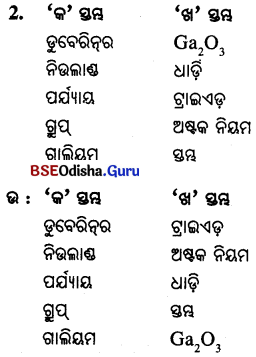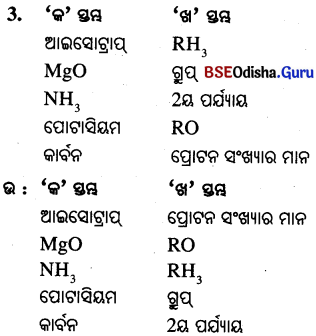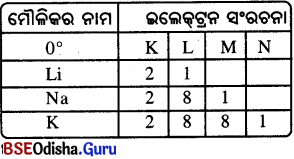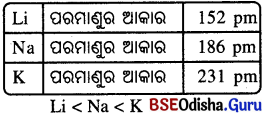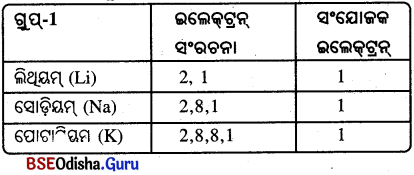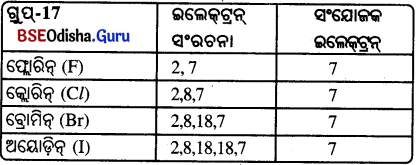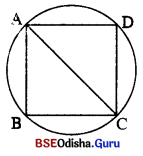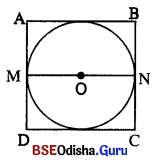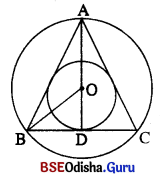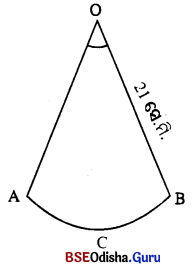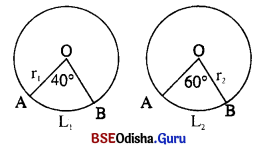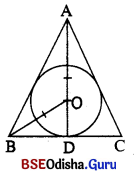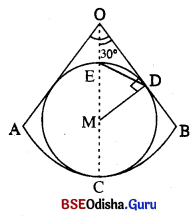Odisha State Board BSE Odisha 10th Class Odia Solutions Chapter 4 ରାଘବଙ୍କ ଲଙ୍କା ଯାତ୍ରାନୁକୂଳ Textbook Exercise Questions and Answers.
BSE Odisha Class 10 Odia Solutions Chapter 4 ରାଘବଙ୍କ ଲଙ୍କା ଯାତ୍ରାନୁକୂଳ
ପାଠ୍ୟପୁସ୍ତକସ୍ଥ ପ୍ରଶ୍ନାବଳୀର ଉତ୍ତର
ସଂକ୍ଷିପ୍ତ ଉତ୍ତରମୂ ଳକ ପ୍ରଶ୍ନୋତ୍ତର
Question ୧ ।
ପ୍ରତ୍ୟେକର ତିନୋଟି ଲେଖାଏଁ ପ୍ରତିଶବ୍ଦ ଲେଖ ।
ସିନ୍ଧୁ, ପର୍ବତ, ଆକାଶ
| ଶବ୍ଦ | ପ୍ରତିଶବ୍ଦ |
| ସିନ୍ଧୁ | ସାଗର, ସମୁଦ୍ର, ପାରାବାର, ଜଳଧ୍ଵ |
| ପର୍ବତ | ଅଚଳ, ପାହାଡ଼, ମହୀଧର, ଗିରି, ଶୈଳ, ଭୂଧର |
| ଆକାଶ | ଅମ୍ବର, ଗଗନ, ବ୍ୟୋମ, ବିହାୟସ |
Question ୨।
ନିମ୍ନଲିଖତ ଶବ୍ଦମାନଙ୍କର ଗଦ୍ୟରୂପ ଲେଖ ।
ପ୍ରାପତି, ଜନମି, ଦଇବ
Answer:
ପ୍ରାପତି – ପ୍ରାପ୍ତି
ଜନମି – ଜନ୍ମି
ପାଇବ – ଦୈବ
![]()
Question ୩ ।
ନିମ୍ନଲିଖ୍ ଶବ୍ଦଗୁଡ଼ିକର ବିପରୀତାର୍ଥବୋଧକ ଶବ୍ଦ ଲେଖ ।
ଆଶା, ନିଃଶ୍ଵାସ, ପ୍ରସନ୍ନ, ଜ୍ୟେଷ୍ଠ, ଜନ୍ମ, ପୁଣ୍ୟ, ବିରସ
Answer:
ଆଶା – ନିରାଶ
ପ୍ରସନ୍ନ – ବିଷଣ୍ଣ/ଅପ୍ରସନ୍ନ
ଜନ୍ମ – ମୃତ୍ୟୁ
ବିରସ – ହରଷ/ପ୍ରଫୁଲ୍ଲ
ନିଃଶ୍ବାସ – ପ୍ରଶ୍ଵାସ
ଜ୍ୟେଷ୍ଠ – କନିଷ୍ଠ
ପୁଣ୍ୟ – ପାପ
Question ୪।
ନିମ୍ନଲିଖ ଶବ୍ଦମାନଙ୍କୁ ନେଇ ସାର୍ଥକ ବାକ୍ୟ ରଚନା କର ।
ପିତୃବ୍ୟ, ବ୍ୟୋମ, ପ୍ରସନ୍ନ, ଅନୁଜ, ସତ୍ଵର
Answer:
ପିତୃବ୍ୟ – ପିତୃବ୍ୟଙ୍କୁ ପିତା ସମ ଭକ୍ତି ଓ ସମ୍ମାନ କରିବା ଉଚିତ ।
ବ୍ୟୋମ – ସକ୍ଷାମାନେ ବ୍ୟୋମରେ ବିହାର କରୁଥିବାରୁ ସେମାନଙ୍କୁ ବ୍ୟୋମବାର। କୁହାଯାଏ।
ପ୍ରସନ୍ନ – ସମସ୍ତ ପ୍ରଶ୍ନର ସଠିକ୍ ଉତ୍ତର ଦେଇଥିବାରୁ ଶିକ୍ଷକ ରାମ ଉପରେ ପ୍ରସନ୍ନ ହେଲେ ।
ଅନୁଜ – ଶ୍ରୀରାମ ଅନୁଜ ଲକ୍ଷ୍ମଣ ଓ ପତ୍ନୀ ମାତାଙ୍କ ସହ ବନଗମନ କରିଥିଲେ ।
ପତ୍ଵର – ଗୁରୁଜନଙ୍କ ଆଦେଶ ସତ୍ୱର ପାଳନାୟ।
Question ୫।
ସନ୍ଧିବିଚ୍ଛେଦ କର ।
ବଜ୍ରାଘାତ, ପ୍ରତ୍ୟୁତ୍ତର, ନିଃଶ୍ଵାସ
Answer:
ବଜ୍ରାଘାତ, = ବଜ୍ର + ଆଘାତ
ପ୍ରତ୍ୟୁତ୍ତର = ନିଃ + ଶ୍ଵାସ
ନିଃଶ୍ଵାସ = ପ୍ରତି + ଉତ୍ତର
Question ୬ ।
ବ୍ୟାସବାକ୍ୟ ସହ ସମାସର ନାମ ଲେଖ ।
ବିଭୂତିଭୂଷଣ, ବିଂଶତିକର, ଦେବରିପୁ, ହୀନପରାକ୍ରମ
Answer:
ବିଭୂତିଭୂଷଣ – ବିଭୂତି ଯାହାର ଭୂଷଣ ସେ – ବହୁବ୍ରୀହି ସମାସ,
ବିଭୂତିରେ ଭୂଷିତ ଯେ – ଉପପଦ ତତ୍ପୁରୁଷ ସମାସ
ବିଂଶତିକର – ବିଂଶତି କର ଯାହାର ସେ – ବହୁ ବ୍ରାହି ସମାସ
ବିଂଶ କର ଯାହାର – ଉପପଦ ତତ୍ପୁରୁଷ ସମାସ
ଦେବରିପୁ – ଦେବତାମାନଙ୍କର ରିପୁ – ଷଷ୍ଠୀ ତପୁରୁଷ ସମାସ
ହାନ ପରାକ୍ରମ – ହାନ ଅଟେ ପରିକ୍ରମ – ମଧ୍ୟପଦ ଲୋପା କମ୍ପଧାରୟ ସମାସ
Question ୭।
କେଁ କେଁ ଭଳି ଆଉ ପାଞ୍ଚଗୋଟି ଧ୍ଵନ୍ୟାତ୍ମକ ଯୁଗ୍ମ ଶବ୍ଦ ଲେଖ ।
Answer:
ପେଁ ପେଁ, ମେଁ ମେଁ, ହେଁ ହେଁ, ମେଁ ମେଁ, ଚେଁ ଚେଁ
କ୍ଷୁଦ୍ର ଉତ୍ତରମୂଳକ ପୂନୋତ୍ତର
Question ୮।
ସିନ୍ଧୁକୁ ପୋତିବାପାଇଁ ରାମଚନ୍ଦ୍ର କାହିଁକି ସ୍ଥିର କଲେ ?
Answer:
ଲଙ୍କାଗଡ଼ରୁ ସୀତାଙ୍କୁ ଉଦ୍ଧାର କରିବା ନିମନ୍ତେ ସମୁଦ୍ର ଅତିକ୍ରମ କରିବା ଆବଶ୍ୟକ ଥିବାରୁ ରାମଚନ୍ଦ୍ର ସିନ୍ଧୁକୁ ପୋତିବାପାଇଁ ସ୍ଥିର କଲେ ।
Question ୯ ।
କବିତାରେ ରାଘବ ଶବ୍ଦଟି କାହା ଉଦ୍ଦେଶ୍ୟରେ ବ୍ୟବହାର କରାଯାଇଛି ?
Answer:
କବିତାରେ ରାଘବ ଶବ୍ଦଟି ରାମଚନ୍ଦ୍ରଙ୍କ ଉଦ୍ଦେଶ୍ୟରେ ବ୍ୟବହାର କରାଯାଇଛି।
![]()
Question ୧୦ ।
ବରୁଣଙ୍କୁ ପ୍ରସନ୍ନ କରିବାପାଇଁ ରାମଚନ୍ଦ୍ର କ’ଣ କଲେ ?
Answer:
ବରୁଣଙ୍କୁ ପ୍ରସନ୍ନ କରିବାପାଇଁ ରାମଚନ୍ଦ୍ର ଅନାହାରରେ ରହିଲେ ଓ କୁଶଶଯ୍ୟାରେ ଶୟନ କଲେ ।
Question ୧୧ ।
ରାବଣ ଶୁକ, ସାରଣଙ୍କ ମାଧ୍ୟମରେ ବିଭୀଷଣଙ୍କ ପାଖକୁ କି ବାର୍ତ୍ତା ପଠାଇଲେ ?
Answer:
ରାବଣ ଶୁକ, ସାରଣ ମନ୍ତ୍ରୀଦ୍ଵୟଙ୍କ ମାଧ୍ୟମରେ ବିଭୀଷଣଙ୍କ ନିକଟକୁ ବାର୍ତ୍ତା ଦେଇ କହିଥିଲେ ଯେ ଯେହେତୁ ଜ୍ୟେଷ୍ଠଭ୍ରାତା ପିତୃତୁଲ୍ୟ ଅଟନ୍ତି; ତେଣୁ ସେ ଯଦିବା କ୍ରୋଧବଶତଃ ତାଙ୍କ ପ୍ରତି କିଛି କଟୁଭାଷା ପ୍ରୟୋଗ କରିଛନ୍ତି ତାହା ଧର୍ତ୍ତବ୍ୟ ନୁହେଁ ବା ସେହି ଉକ୍ତିକୁ ତିକ୍ତତୁଲ୍ୟ ମନେକରିବା ଉଚିତ ନୁହେଁ । ଏତଦ୍ଭିନ୍ନ ରାଜ ଐଶ୍ବର୍ଯ୍ୟର ପ୍ରାଚୁର୍ଯ୍ୟକୁ ତ୍ୟାଗକରି
Question ୧୨ ।
ଅଙ୍ଗଦ ନିକଟକୁ ରାବଣ କି ସନ୍ଦେଶ ପ୍ରେରଣ କଲେ ?
Answer:
ଅଙ୍ଗଦ ପ୍ରତି ରାବଣଙ୍କ ବାର୍ତ୍ତା ଥୁଲା ଯେ ପିତାଙ୍କ ଶତ୍ରୁକୁ ଭକ୍ତି କଲେ କଦାପି ପୁଣ୍ୟାର୍ଜନ ହୁଏ ନାହିଁ । ତେଣୁ ପତୃବ୍ୟ ସୁଗ୍ରୀବଙ୍କ ସହ ବିବାଦ ରଚନା କରି ସେ ତୁରନ୍ତ ସୈନ୍ୟ ପ୍ରତ୍ୟାହାରପୂର୍ବକ ସେମାନଙ୍କ ସଙ୍ଗ୍ ତ୍ୟାଗ କରନ୍ତୁ ।
Question ୧୩।
ରାବଣର ବାର୍ତ୍ତା ନେଇ ଅଙ୍ଗଦ ନିକଟକୁ କିଏ ଆସିଥିଲେ ?
Answer:
ରାବଣର ବାର୍ତ୍ତା ନେଇ ଅଙ୍ଗଦ ନିକଟକୁ ରାବଣଙ୍କର ଦୁଇଜଣ ମନ୍ତ୍ରୀ ଶୁକ ଓ ସାରଣ ଆସିଥିଲେ ।
Question ୧୪ ।
ରାବଣର ବାର୍ତ୍ତା ଶୁଣି ଅଙ୍ଗଦ କି ପ୍ରତିକ୍ରିୟା ପ୍ରକାଶ କଲେ ?
Answer:
ରାବଣର ବାର୍ତ୍ତା ଶ୍ରବଣ ମାତ୍ରକେ ଅଙ୍ଗଦ ଭୀଷଣ ଉତ୍ତେଜିତ ହୋଇପଡ଼ିଥିଲେ । କ୍ରୋଧରେ ଶୂନ୍ୟକୁ ବଜ୍ର ସମ ପ୍ରତ୍ୟାବର୍ତ୍ତନ କରିଥିଲେ ।
![]()
Question ୧୫ ।
ମନ୍ତ୍ରୀଦ୍ୱୟ ରାବଣ ନିକଟରେ କି ଉକ୍ତି ପ୍ରକାଶ କଲେ?
Answer:
ମନ୍ତାଦ୍ଵୟ ବିଭାଷଣଙ୍କୁ ପ୍ରଦାନ କରିଥିବା ବାର୍ତ୍ତାର ପ୍ରତ୍ୟୁତ୍ତର ଏବଂ ପାର୍ତ୍ତା ଶ୍ରବଣରେ ଅଙ୍ଗନାଙ୍କ ପ୍ରତକ୍ରୟା ସମ୍ପର୍କିତ ଉକ୍ତି ପ୍ରକାଶ କରିଥିଲେ। ବିଭୀଷଣ ଲଙ୍କପତିଙ୍କ ବାର୍ତ୍ତାର ପ୍ରତ୍ୟୁତ୍ତର ଥିଲା ‘ଯଦି ଜ୍ୟେଷ୍ଠଭ୍ରାତା ଦେବୀ ସୀତାଙ୍କୁ ସସମ୍ମାନେ ରାମଚନ୍ଦ୍ରଙ୍କୁ ନିଃସର୍ଭ ସମର୍ପଣ କରନ୍ତି ତେବେ ସେ ଲଙ୍କାପୁରୀକୁ ପ୍ରତ୍ୟାବର୍ତ୍ତନ କରିବେ’’ଉକ୍ତି ମନ୍ତ୍ରୀଦ୍ବୟ ରାବଣ ନିକଟରେ ପ୍ରକାଶ କରିଥିଲେ ।
Question ୧୬ ।
ଅଙ୍ଗଦଙ୍କ ଶକ୍ତ ଚାପୁଡ଼ା ପ୍ରହାରରେ ମନ୍ତ୍ରୀଦ୍ଵୟଙ୍କର କି ଅବସ୍ଥା ହୋଇଥାନ୍ତା ?
Answer:
ଅଙ୍ଗଦଙ୍କ ଶୂନ୍ୟରେ ଚାପୁଡ଼ା ପ୍ରହାର ଏପରି ଶକ୍ତିଶାଳୀ ଥିଲା ଯେ ବିଶାଳ ବିନ୍ଧ୍ୟ ପର୍ବତ ସେହି ଆଘାତରେ ଚୂର୍ଣ୍ଣ ବିଚୂର୍ଣ୍ଣ ହୋଇଯାଇଥାଆନ୍ତି । ଅଥବା ପାଞ୍ଜାଳଗାମା ହୋଇଯାଇଥାଆନ୍ତ୍ରା ବାହା ନିଶ୍ଚିତଭାବେ ମନ୍ତ୍ରଦ୍ୱୟଙ୍କର ପ୍ରାଣଘାତକ ହୋଇଥାଆନ୍ତା। କେବଳ ଧର୍ମ ବଳରୁ ସେହି ଆଘାତରୁ ସେମାନେ ପ୍ରାଣ ବଞ୍ଚାଇବାରେ ସମର୍ଥ ହେଲେ ବୋଲି ମନ୍ତ୍ରୀଦ୍ଵୟ କହିଥିଲେ।
Question ୧୭ ।
ଶ୍ରୀରାମଙ୍କ ସୈନ୍ୟ ସଂଖ୍ୟା କେତେ ବୋଲି ମନ୍ତ୍ରୀଦ୍ଵୟ କଳନା କଲେ ?
Answer:
ସମୁଦ୍ରର ଜଳରାଶିରେ ସୃଷ୍ଟ ତଥା ପରିଦୃଷ୍ଟ ଶଙ୍ଖମାନଙ୍କ ସଂଖ୍ୟା ଯେତେ ଶ୍ରୀରାମଙ୍କ ସୈନ୍ୟସଂଖ୍ୟା ସେତେ ଶଙ୍ଖଠାରୁ ଅଧ୍ଵକ ବା ଅଗଣିତ ବୋଲି ମନ୍ତ୍ରୀଦ୍ୱୟ କଳନା କଲେ ।
Question ୧୮ ।
ସମୁଦ୍ର ତରିବା ନିମନ୍ତେ ରାଘବ କ’ଣ ପାଞ୍ଚିଥିଲେ ?
Answer:
ସମୁଦ୍ର ଲଙ୍ଘନ ନିମନ୍ତେ ସେତୁ ସ୍ଥାପନ ପାଇଁ ରାଘବ ବରୁଣ ଦେବତାଙ୍କୁ ସନ୍ତୁଷ୍ଟ କରିବାକୁ ଉଚିତ ମନେ କରି ତାଙ୍କ ପ୍ରୀତ୍ୟର୍ଥେ ଅନାହାର ରହିବା ସହ କୁଶଶଯ୍ୟାରେ ଶୟନ କରିବେ ବୋଲି ପାଞ୍ଚିଥିଲେ ।
ପପ୍ରସଙ୍ଗ ପରଳାର୍ଥ
Question ୧୯ ।
ବିସ୍ମଇ ନିଃଶ୍ବାସ ତେଜି ବରୁଣ ପ୍ରସନ୍ତେ
ବିନାଶନରେ ଶୟନ ସେ ଦର୍ଭଶୟନେ ଯେ ।
Answer:
ବିସ୍ମଇ ନିଶ୍ଵାସ …………………..ଦର୍ଭ ଶୟନେ ଯେ ।’’
ପ୍ରଦତ୍ତ ପଦ୍ୟାଂଶଟି କବି ସମ୍ରାଟ ଉପେନ୍ଦ୍ର ଭଞ୍ଜଙ୍କ କାଳଜୟୀ କାବ୍ୟ ବୈଦେହାଶ ବିଳାସ କାବ୍ୟର ଚତ୍ବାରିଂଶତମ ଛାନ୍ଦର ପ୍ରଥମାଂଶ ଚାଘବଙ୍କ ଲଙ୍କା ଯାତ୍ରାନୁଚଳ ଶୀର୍ଷକ କବିତାରୁ ଉଦ୍ଧତା ଏଠାରେ କବି ଶ୍ରୀରାମଙ୍କ ଲଙ୍କାଭିଯାନ ନିମନ୍ତେ ଆୟୋଜିତ ସମୁଦ୍ରରେ ସେତୁ ନିର୍ମାଣର ସଫଳତା ନିମନ୍ତେ ଆଚରିତ ସାତ୍ତ୍ଵିକ ନିଷ୍ଠା ଉପରେ ଆଲୋକପାତ କରିଛନ୍ତି ।ସେତୁ ନିର୍ମାଣ ପାଇଁ ଅମାପ ବଳଶାଳୀ ବାନର ସୈନ୍ୟମାନେ ସମୁଦ୍ରରେ ବିଶାଳ ଗିରିଖଣ୍ଡମାନ ନିକ୍ଷେପ କରିବାକୁ ଲାଗିଲେ । ମାତ୍ର ସେ ସମସ୍ତ ଅତଳ ଜଳଧୂ ଗର୍ଭରେ ବିଲୀନ ହେବାକୁ ଲାଗିଲା । କେବଳ ଫି ଫି କାର ଶବ୍ଦ ବ୍ୟତୀତ ସାମାନ୍ୟ ବୁଦ୍ବୁଦ ମଧ୍ୟ ପରିଦୃଷ୍ଟ ହେଲାନାହିଁ । ସାଗର ଜଳର ଏତାଦୃଶ ଆଚରଣ ଶ୍ରୀରାମଙ୍କୁ ବିସ୍ମିତ କଲା । କାର୍ଯ୍ୟାରମ୍ଭରେ କୌଣସି ତ୍ରୁଟି ବିଚ୍ୟୁତି ରହିଥିବା ସନ୍ଦେହ କରି ରାମଚନ୍ଦ୍ରଙ୍କ ମନ ଆନ୍ଦୋଳିତ ହେବାକୁ ଲାଗିଲା
ତାଙ୍କର ହୃଦ୍ବୋଧ ହେଲା ଯେ ବରୁଣ ଦେବଙ୍କ ସହାୟତା ବିନା ସମୁଦ୍ରରେ ସେତୁନିର୍ମାଣ ଅସମ୍ଭବ । ତେଣୁ ଜଳଦେବତାଙ୍କୁ ସନ୍ତୁଷ୍ଟ କରିବାପାଇଁ ସେ ଆହାର ତ୍ୟାଗ କରି ଅନଶନରେ ରହିଲେ ଏବଂ କୋମଳ ଶଯ୍ୟା ପରିବର୍ତ୍ତେ କର୍କଶ କୁଶଶଯ୍ୟାରେ ଶୟନ କରି ବରୁଣ ଦେବଙ୍କ ଅନୁଗ୍ରହ କାମନା କଲେ । କୌଣସି ଗୁରୁତ୍ବପୂର୍ଣ୍ଣ ଶୁଭକର୍ମ ଆରମ୍ଭ କରିବା ପୂର୍ବରୁ ଦୈବୀକୃପା କାମନା କରିବା ଯେ ସର୍ବାଦୌ ଆବଶ୍ୟକ ଏହା ନରଦେହୀ ଭଗବାନ୍ ଶ୍ରୀରାମ ହୃଦୟଙ୍ଗମ କଲେ । ତେଣୁ ବରୁଣ ଦେବଙ୍କ ପ୍ରତ୍ୟର୍ଥେ ସେ ଉପବାସ ତଥା କୁଶଶଯ୍ୟାରେ ଶୟନ ପାଇଁ ନିଷ୍ପତ୍ତି ନେଲେ ।
![]()
Question ୨୦ ।
ବିଭୂତିକି ଭୁଞ୍ଜୁଥୁଲୁ ବିଭୂତିଭୂଷଣେ
ବଡ଼କୁଳେ ଜନମି ଶରଣ କି କାରଣେ ଯେ ?
Answer:
ବିଭୂତିକି ଭୁଞ୍ଚୁଥୁଲୁ …………………. କି କାରଣେ ଯେ ।
ପ୍ରୋକ୍ତ ପଦ୍ୟାଟି କରିସମ୍ରାଟ ଉପେନ୍ଦ୍ର ଭଞ୍ଜଙ୍କ କାଳଜୟୀ ବୈଦେହାଶ ବିଳାସ କାବ୍ୟର ଚତ୍ବାରିଂଶତମ ଛାନ୍ଦ।ନ୍ତ୍ରର୍ଗତ ରାଘବଙ୍କ ଲଙ୍କା ଯାତ୍ରାନୁକୁଳ ଶାର୍ଷିକ କବିତାରୁ ଆନୀତ ଏଠାରେ କବି ଅନୁଜ ବିଭୀଷଣଙ୍କ ପ୍ରତି ଜ୍ୟେଷ୍ଠ ଦଶାନନଙ୍କ ପ୍ରେରିତ ବାର୍ତ୍ତା ଉପରେ ଆଲୋକପାତ କରିଛନ୍ତି । ବିଭୀଷଣ ଜ୍ୟେଷ୍ଠଭ୍ରାତା ଦଶାନନର ଭତ୍ସନା ଓ କଟୁବାଣୀ ସହ୍ୟ କରି ନପାରି ଲଙ୍କା ତ୍ୟାଗପୂର୍ବକ ଶ୍ରୀରାମଙ୍କ ଶରଣାପନ୍ନ ହୋଇଥିଲେ । କାଳେ ସେ ଶତ୍ରୁ ସମ୍ମୁଖରେ ଗୁପ୍ତ ତଥ୍ୟ ପ୍ରକାଶ କରିଦେବେ, ଏହି ଭୟରେ ରାବଣ ତା’ର ପ୍ରମୁଖ ମନ୍ତ୍ରୀ ଶୁକ ଓ ସାରଣଙ୍କୁ ଦୂତରୂପେ ଶ୍ରୀରାମଙ୍କ ଶିବିରକୁ ପଠାଇ ସେମାନଙ୍କ ମାଧ୍ୟମରେ ବିଭୀଷଣଙ୍କ ପ୍ରତି ବାର୍ତ୍ତା ପ୍ରେରଣ କରିଥିଲା । ବିଭୀଷଣଙ୍କ ପ୍ରତି ପ୍ରଦତ୍ତ ବାର୍ତ୍ତାରେ ସେ କହିଥିଲା ଯେ ଜ୍ୟେଷ୍ଠଭ୍ରାତା ପିତୃତୁଲ୍ୟ ସମ୍ମାନାସ୍ପଦ ଅଟନ୍ତି । କ୍ରୋଧବଶତଃ ସେ ଯଦିବା କିଛି କଟୁ ଜଣେ ସାମାନ୍ୟ ତପାଚାରୀଠାରେ ନିଜକୁ ସମର୍ପଣ କରି ତା’ର ଶରଣପ୍ରାର୍ଥୀ ହେବା ଅପମାନଜନକ । ଏଣୁ ଲଙ୍କାନଗରୀକୁ ପ୍ରତ୍ୟାବର୍ତ୍ତନ କରିବା ତାଙ୍କ ପକ୍ଷେ ଶ୍ରେୟସ୍କର ହେବ ବୋଲି ଦଶାର୍ଜନ କନିଷ୍ଠଭ୍ରାତା ବିଭୀଷଣଙ୍କୁ ବାର୍ତ୍ତା ମାଧ୍ୟମରେ ଶତ୍ରୁ ଶିବିରରୁ ପୃଥକ୍ କରିବାକୁ ଚେଷ୍ଟା କରିଥିଲା ।
Question ୨୧ ।
ବାଜିଥିଲେ ଚୂର୍ଣ ବା ପାତାଳେ ଭଜିଥିବ
ବିନ୍ଧ୍ୟ ଭାନୁ ତୋଷି ହେଲେ ବଞ୍ଚାଇ ଦଇବ ଯେ ।
Answer:
ବାଜିଥିଲେ ଚୂର୍ଖ ………….. ବଞ୍ଚାଇ ଦଇବ ଯେ ।
ପ୍ରଦତ୍ତ ପଦ୍ୟାଶଟି କବି ସମ୍ରାଟ ଉପେନ୍ଦ୍ର ଭଞ୍ଜଙ୍କ ରଚିତ ‘ବୈଦେହୀଶ ବିଳାସ’ କାବ୍ୟର ଚତ୍ୱାରିଂଶତମ ଛାନ୍ଦ ଅନ୍ତର୍ଗତ ରାଘବଙ୍କ ଲଙ୍କା ଯାତ୍ରାନୁକୂଳ ଶାର୍ଷିକ କବିତାରୁ ଉଘୃତା ଏଠାରେ କବି ଉତ୍କ୍ଷିପ୍ତ ଅଙ୍ଗଦଙ୍କ କ୍ରୋଧଯୁକ୍ତ ବଜ୍ରସମ ସଶକ୍ତ ଚପୋଟାଘାତର ଭୟଙ୍କରିତା ସମ୍ପର୍କରେ ଉଲ୍ଲେଖ କରିଛନ୍ତି ।
ଲଙ୍କପତି ଦଣାନନଦ୍ୱ।ରା ପ୍ରେରିତ ଶୁକ ଓ ସାରଣ ମନ୍ତ୍ରୀଦ୍ଵୟ ସାଗର ତଟଦେଶସ୍ଥ ଶ୍ରୀରାମଙ୍କ ଶିବିରରେ ଉପସ୍ଥିତ ହୋଇ ପ୍ରଥମେ ବିଭାଷଶଙ୍କୁ ବୌଷଭ୍ରତା ଲଙ୍କାଧାଶ ରାବ ଶଙ୍କ ବାର୍ତ୍ତା ପ୍ରଦାନ କଲେ। ତତ୍ ପରେ କିସ୍ମିଯ୍ୟା ଯୁବରାଜ ଅଙ୍ଗତାଙ୍କୁ ରାଜାଙ୍କ ନିର୍ଦ୍ଦେଶାନୁସାରେ ବାର୍ତ୍ତା ଦେଇ କହିଥିଲେ ଯେ, ପିତା ଶତ୍ରୁ ନିକଟରେ ଆନୁଗତ୍ୟ ପ୍ରକାଶ କରି ତାଙ୍କ ନିକଟରେ ଶରଣାପନ୍ନ ହୋଇ ରହିବାରେ କଦାପି ପୁଣ୍ୟାର୍ଜନ ହୁଏନାହିଁ । ଏହି ବାର୍ତ୍ତା ଶ୍ରବଣ କଲାମାତ୍ରେ ଅଙ୍ଗଦ କ୍ରୋଧଜର୍ଜରିତ ହୋଇ ଶୂନ୍ୟକୁ ଏପରି ଏକ ସଶକ୍ତ ଚାପୁଡ଼ା ପ୍ରହାର କଲେ ଯାହା ବିଶାଳ ବିନ୍ଧ୍ୟ ପର୍ବତରେ ବାଜିଥିଲେ ତାହାକୁ ଚୂର୍ଣ୍ଣବିଚୂର୍ଣ୍ଣ କରିଦେଇ ଥାଆନ୍ତା; ଅଥବା ଆଘାତର ତ। ବ୍ରତାରେ ତାହା ରସାତଳଗାମା ହୋଇଥା’ନ୍ତା ସୂର୍ଯ୍ୟଙ୍କ ଗତିପଥରେ ଅନ୍ତରାୟ ସୃଷ୍ଟି କରୁଥିବ ସଦ୍ୟ ପର୍ବତ ପାତାଳଗାମୀ ହୋଇଥିଲେ ଭାନୁଦେବ ନିଜ ପଥର ପ୍ରତିବନ୍ଧକ ଦୂର ହେଲା ବୋଲି ହୁଏତ ଆନନ୍ଦିତ ହୋଇଥାଆନ୍ତେ । ମନ୍ତ୍ରୀଦ୍ୱୟ ଏହି ଉକ୍ତିରୁ ଅଙ୍ଗଦଙ୍କ ଶକ୍ତିର ଦୃଢ଼ତା ସହଜରେ ଅନୁମିତ ହୁଏ ।
ଦୀର୍ଘ ଉତ୍ତରମୂଳକ ପ୍ରଶ୍ନୋତ୍ତର
Question ୨୨ ।
ଲଙ୍କାଯାତ୍ରା ନିମନ୍ତେ ରାଘବଙ୍କ ପ୍ରୟାସ ବର୍ତ୍ତନ କର ।
କିମ୍ବା,ରାବଣଦ୍ଵାରା ଅପହୃତା ସୀତାଙ୍କୁ ଉଦ୍ଧାର କରିବା ନିମନ୍ତେ ରାମଚନ୍ଦ୍ରଙ୍କ ପ୍ରାକ୍ ପ୍ରସ୍ତୁତି ସମ୍ପର୍କରେ ଆଲୋଚନା କର ।
Answer:
ଉତ୍କଳ ସାହିତ୍ୟର ମଧ୍ୟଯୁଗ ତଥା କାବ୍ୟଯୁଗର ଦିଗ୍ବଳୟ ଯେଉଁ ପ୍ରଜ୍ଞାପୁରୁଷଗଣଙ୍କର ପ୍ରାଜ୍ଞ ଚେତନାରେ ବଣ୍ଡିଳ ତଥା ଉପଭୋଗ୍ୟ ହୋଇଛି, ସେହି ସାରସ୍ଵତ ସାଧକଗଣଙ୍କ ମଧ୍ୟରେ କବିସମ୍ରାଟ ଉପେନ୍ଦ୍ର ଭଞ୍ଜ ଅନ୍ୟତମ । ଶାବ୍ଦିକ ବୈଶିଷ୍ଟ୍ୟ, ଆଳଙ୍କାରିକ ମାଧୁର୍ଯ୍ୟ, ଛନ୍ଦୋବଦ୍ଧ ଶୈଳୀର ନୈପୁଣ୍ୟ ତଥା ବୌଦ୍ଧିକ ଚେତନାର ଗାମ୍ଭୀର୍ଯ୍ୟପୂର୍ଣ୍ଣ ସୃଷ୍ଟିନିଚୟ ସେହି ପ୍ରଚଣ୍ଡ ପ୍ରତିଭାଦୀପ୍ତ ସାଧକଶ୍ରେଷ୍ଠଙ୍କର ଅନନ୍ୟ ବିଦ୍ବତ୍ତାର ଅଭିବ୍ୟକ୍ତି ‘କୋଟି ବ୍ରହ୍ମାଣ୍ଡ ସୁନ୍ଦରୀ’, ‘ରସିକ ହାରାବଳୀ’, ‘ପ୍ରେମ ସୁଧାନିଧ୍’, ‘ଲାବଣ୍ୟବତୀ’, ‘ବୈଦେହୀଶ ବିଳାସ’ ଭଳି କାବ୍ୟସମୂହ ଏହି ଯୁଗାନ୍ତକାରୀ ସ୍ରଷ୍ଟାଙ୍କର ଅନୁପମ ପ୍ରତିଭାର ନିଦର୍ଶନ। କବିଙ୍କର ସର୍ବଶ୍ରେଷ୍ଟ ବିଜଗ୍ଧ କାବ୍ୟ ‘ବୈଦେହାଶ ବିଳାସ’ ର ପ୍ରତ୍ୱାରିଂଶତମ ଛାନ୍ଦର ପ୍ରଥମାଂଶ ‘କାଘବଙ୍କ ଲଙ୍କା ଯାତ୍ରାନୁକୁଳ’ ଶାର୍ଷିକ କବିତା ଟିରେ କରି ସମ୍ରାଟ ଶ୍ରୀରାମଚନ୍ଦ୍ରଙ୍କ ଲଙ୍କା ଅଭିଯାନ ନିମନ୍ତେ ସମୁଦ୍ରରେ ସେତୁ ନିର୍ମାଣର ଶୁଭାରମ୍ଭ ପ୍ରସଙ୍ଗ ଉପସ୍ଥାପନ କରିଛନ୍ତି।
ମାତା ଜାନକୀ ଦଶାନନର ଲଙ୍କାପୁରୀରେ ଅବସ୍ଥାନ କରୁଥିବା ଅବଗତ ହେଲାପରେ ଶ୍ରୀରାମଚନ୍ଦ୍ର ମର୍କଟ ଓ ଭଲ୍ କ ସୈନ୍ୟଙ୍କ ସହ ଲଙ୍କାଭିଯାନ ପାଇଁ ନିଷ୍ପତ୍ତି ନେଇଛନ୍ତି । ଅଭିଯାନର ପ୍ରଥମ ପ୍ରତିବନ୍ଧକ ସମୁଦ୍ର ଲଂଘନ ପାଇଁ ସେ ହନୁମାନ, ସୁଗ୍ରୀବ, ଅଙ୍ଗଦ, ଜାମ୍ବବାନ ଓ ବିଭୀଷଣଙ୍କ ସହ ମନ୍ତ୍ରଣା କରି ସେତୁବନ୍ଧ ନିର୍ମାଣ ଅବଶ୍ୟମ୍ଭାବୀ ବୋଲି ଅନୁଭବ କରିଛନ୍ତି । ସାଗର-ସେତୁ ନିର୍ମାଣ ଯୋଜନାରେ ବାନର ଓ ଭଲ୍ କ ସୈନ୍ୟମାନଙ୍କ ଗଭୀର ଉତ୍ସାହ ଲକ୍ଷ୍ୟକରି ରାଘବ କାର୍ଯ୍ୟାରମ୍ଭ ପାଇଁ ନିର୍ଦ୍ଦେଶ ଦେଇଛନ୍ତି । ଆଦେଶ ପ୍ରାପ୍ତି ମାତ୍ରେ ହନୁମାନଙ୍କ ନେତୃତ୍ୱରେ କପିସୈନ୍ୟମାନେ ବିଶାଳ ପର୍ବତ ଖଣ୍ଡମାନ ସମୁଦ୍ର ମଧ୍ୟକୁ ନିକ୍ଷେପ କରିଛନ୍ତି; କିନ୍ତୁ ପ୍ରକାଣ୍ଡ ଗିରିଖଣ୍ଡମାନ ଗଭୀର ଜଳରେ ପତିତ ହେବାମାତ୍ରେ ଅତଳ ଜଳଧୂଗର୍ଭରେ ବିଲୀନ ହେବାପରି ପ୍ରତୀୟମାନ ହୋଇଛି । ସାଧାରଣତଃ ଜଳରେ କୌଣସି ବସ୍ତୁ ପଡ଼ିବାମାତ୍ରେ ବୁଦ୍ବୁଦ ଉତ୍ପନ୍ନ ହୋଇଥାଏ । ମାତ୍ର ପର୍ବତ ପରି ବିଶାଳ ଶିଳାଖଣ୍ଡମାନ ସମୁଦ୍ର ଜଳରେ ବୁଡ଼ିଲା ପରେ ସାମାନ୍ୟ ବୁଦ୍ବୁଦ ମଧ୍ୟ ସୃଷ୍ଟି ହୋଇନାହିଁ । କେବଳ ଜଳ ମଧ୍ୟରୁ ‘ଫି ଫି’ କାର ଶବ୍ଦ ମାତ୍ର ନିର୍ଗତ ହୋଇଛି । କବି ସମ୍ରାଟଙ୍କ ଭାଷାରେ-
‘ବୁଡ଼ିଗଲା ପକାଇଲେ କପି ଯେତେ ଗିରି
ବୁଦ୍ବୁଦ ନ ଦିଶେ ଜଳ ଫି ଫି କୃତ କରି ଯେ ।’’
ସମୁଦ୍ର ଜଳର ଏପରି ଅବିଶ୍ଵାସ୍ୟ ଆଚରଣ ରାଘବଙ୍କୁ ବିସ୍ମିତ କରିଛି। କାର୍ଯ୍ୟାରମ୍ଭରେ ହୁଏତ କୌଣସି ତ୍ରୁଟିବିଚ୍ୟୁତି ହେତୁ ଏପରି ଅଘଟଣ ସୃଷ୍ଟି ହେଲା ବୋଲି ତାଙ୍କ ମନରେ ସଂଶୟ ଜାତ ହୋଇଛି। ସେତୁ ନିର୍ମାଣ ଭିନ୍ନ ଲଙ୍କାଗଡ଼କୁ ପ୍ରବେଶ କରିବାପାଇଁ ଅନ୍ୟ କୌଣସି ବିକଳ୍ପ ବ୍ୟବସ୍ଥା ଅସମ୍ଭବ, କାରଣ ଲଙ୍କାଗଡ଼ର ଚତୁର୍ଦ୍ଦିଗ ସାଗର ପରିବେଷ୍ଟିତ। ଶତ୍ରୁ ଆକ୍ରମଣରୁ ସୁରକ୍ଷିତ ରଖିବାପାଇଁ ଦଶାନନ ହୁଏତ ଏପରି ଏକ ସ୍ଥାନକୁ ନିଜ ରାଜ୍ୟଭାବେ ନିର୍ବାଚନ କରିଛି। ଏତଦ୍ଭିନ୍ନ ସମୁଦ୍ରରେ ସେତୁ ନିର୍ମାଣ ନହେଲେ ମାତା ଜାନକୀଙ୍କୁ ଉଦ୍ଧାର କରିବା କଦାପି ସମ୍ଭବ ନୁହେଁ । ଲଙ୍କାଭିଯାନର ପ୍ରାରମ୍ଭିକ ପର୍ଯ୍ୟାୟରେ ବିଘ୍ନ ସୃଷ୍ଟି ହେବାର କାରଣ ଅନୁଧ୍ୟାନ କରିଛନ୍ତି ଶ୍ରୀରାମ। ରାଘବ ଅନୁଭବ କରିଛନ୍ତି ଯେ ହୁଏତ ବରୁଣଦେବଙ୍କ ଅନୁମତି ବିନା ସେତୁବନ୍ଧ କାର୍ଯ୍ୟାରମ୍ଭ କରିବା ତାଙ୍କ ପକ୍ଷେ ଏକ ତ୍ରୁଟିପୂର୍ଣ୍ଣ ନିଷ୍ପତ୍ତି ଥିଲା । ବରୁଣ ଦେବତାଙ୍କ ସହାୟତା ବିନା ସେହି ନିର୍ମାଣକାର୍ଯ୍ୟ କଦାପି
ସମ୍ଭବ ନୁହେଁ ବୋଲି ତାଙ୍କର ହୃଦ୍ବୋଧ ହୋଇଛି । ଜଳ ଦେବତାଙ୍କୁ ପ୍ରସନ୍ନ କରିବାପାଇଁ ସେ ପାନାହାର ପରିତ୍ୟାଗ ପୂର୍ବକ ଅନଶନ କରିଛନ୍ତି ଏବଂ ସୁଖଶଯ୍ୟା ପରିହାର କରି ଶୟନ ନିମିତ୍ତ କୁଶଶଯ୍ୟାକୁ ଆଦରି ନେଇଚନ୍ତି । କବିଙ୍କ ଭାଷାରେ
“ବିସୃଚ୍ଚ ନିଶ୍ୱାସ ତେଜି ବରୁଣ ପ୍ରସନ୍ନେ
ବିନାଶନରେ ଶୟନ ସେ ଗର୍ଭଶୟ ନେ ଯୋ”
ମର୍ଯ୍ୟାଦା ପୁରୁଷୋତ୍ତମ ନରଦେହୀ ନାରାୟଣଙ୍କ ମନରେ ପ୍ରତ୍ୟୟ ସୃଷ୍ଟି ହୋଇଛି ଯେ ସେତୁ ନିର୍ମାଣ ପରି ଏକ ମହାନ୍ କାର୍ଯ୍ୟର ଶୁଭାରମ୍ଭ ପୂର୍ବରୁ ଯାହାକିଛି ପ୍ରାଥମିକ ଭଗବତ୍ କ୍ରିୟା ସଂପାଦନ କରାଯିବା ବିଧେୟ ସେଥିରେ ସେ ଅବଶ୍ୟ ତ୍ରୁଟି କରିଛନ୍ତି । କେବଳ ସେଇଥପାଇଁ ସମୁଦ୍ର ଜଳ ଅଦ୍ଭୁତ ଆଚରଣ ପ୍ରଦର୍ଶନ କରିଛି । ତ୍ରୁଟି ସଂଶୋଧନ ପୂର୍ବକ ପ୍ରାୟଶ୍ଚିତ୍ତ ସ୍ଵରୂପ ବରୁଣଦେବଙ୍କୁ ପ୍ରସନ୍ନ କରିବାପାଇଁ ତାଙ୍କୁ ଅବଶ୍ଯ ଶାରୀରିକ କ୍ଳେଶ ସହ୍ୟ କରିବା ତଥା ଅନଶନରେ ରହି ଅନୁମତି ପ୍ରାପ୍ତି ନିମିତ୍ତ ପ୍ରାର୍ଥନା କରିବାକୁ ହେବ । ଏହା ଅନୁଭବ କରି ଶୁଦ୍ଧପୂତଭାବେ ଦୈହିକ କଷ୍ଟ ସ୍ୱୀକାର କରି ଜଳ ଦେବତାଙ୍କୁ ପ୍ରସନ୍ନ କରାଇବାପାଇଁ ପ୍ରୟାସ କରିଛନ୍ତି । ଶ୍ରୀରାମଙ୍କର ଏତାଦୃଶ ପଦକ୍ଷେପରୁ ସ୍ପଷ୍ଟ ପ୍ରତୀତ ହୁଏ ଯେ କୌଣସି ଶୁଭକର୍ମର ଶୁଭାରମ୍ଭ ପୂର୍ବରୁ ଭଗବତ୍ ଆଶିର୍ବାଦ ଅବଶ୍ୟ କରଣୀୟ।
![]()
Question ୨୩।
ପଠିତ କବିତାରୁ ରାବଣର କୂଟନୀତି ସମ୍ପର୍କରେ ଆଲୋଚନା କର।
କିମ୍ବା,ଲଙ୍କପତି ରାବଣ ଥିଲେ ଜଣେ କୂଟନୀତି ବିଶାରଦ। ଉକ୍ତିଟିର ଯଥାର୍ଥତା ପଠିତ କବିତା ଅବଲମ୍ବନରେ ଆଲୋଚନା କର।
Answer:
ଉତ୍କଳ ସାହିତ୍ୟର ମଧ୍ୟଯୁଗ ତଥା ରାତିଯୁଗ ଯେଉଁ ସାରସ୍ୱିତ ସାଧକତଶଙ୍କ ଚେତନାସ୍ନାତ ଅବ୍ତାନରେ ରଦ୍ଧିମନ୍ତ ରସସିକ୍ତ ଓ ହୃଦୟସ୍ପର୍ଶୀ ହୋଇଉଠିଛି, ସେମାନଙ୍କ ମଧ୍ୟରେ କବିସମ୍ରାଟ ଉପେନ୍ଦ୍ର ଭଞ୍ଜ ଅଗ୍ରଗଣ୍ୟ । ସାରସ୍ଵତ ସାଧନାରେ ଚିରତଲ୍ଲୀନ ଏହି ପ୍ରଜ୍ଞାପୁରୁଷଙ୍କର ଶାବ୍ଦିକ ବୈଭବ, ଆଳଙ୍କାରିକ ନୈପୁଣ୍ୟ, ବୈଦ୍ଧିକ କଳ୍ପନା ତଥା ପ୍ରାଜ୍ଞ ଚେତନାରେ ସମୃଦ୍ଧ ଲେଖନୀ ତାଙ୍କ ସୃଷ୍ଟିନିଚୟକୁ ଯେପରିଭାବେ ଉପଭୋଗ୍ୟ କରିଛି, ତା’ର ପଟାନ୍ତର ନାହିଁ । ‘ବୈଦେହୀଶ ବିଳାସ’, ‘କୋଟି ବ୍ରହ୍ମାଣ୍ଡ ସୁନ୍ଦରୀ’, ‘ଲାବଣ୍ୟବତୀ’, ‘ପ୍ରେମ ସୁଧାନିଧ୍ଵ’, ‘ରସିକ ହାରାବଳୀ’ ଓ ‘ସୁଭଦ୍ରା ପରିଣୟ ’ ଭଳି ସୁଧାସ୍ରାବୀ କାବ୍ୟନିଚୟ କବିଙ୍କ ଅନନ୍ୟ ପ୍ରତିଭାର ବଳିଷ୍ଠ ନିଦର୍ଶନ ।
କବିଙ୍କ ସର୍ବଶ୍ରେଷ୍ଠ ରାମକଥା କାବ୍ୟ ‘ବୈଦେହୀଶ ବିଳାସ’ ଅନ୍ତର୍ଗତ ଚତ୍ବାରିଂଶ ଛାନ୍ଦରୁ ଗୃହୀତ ‘ରାଘବଙ୍କ ଲଙ୍କା ଯାତ୍ରାନୁଜଳ ‘ଶୀର୍ଷକ କବିତାରେ କବି ଶ୍ରୀରାମଚନ୍ଦ୍ରଙ୍କ ଲଙ୍କାଭିଷାନ ନିମନ୍ତେ ସମୁଦ୍ରରେ ସେତୁ ନିର୍ମାଣର ଶୁଭାରମ୍ଭ ଦର୍ଶନରେ ଦଶାନନର କୁଟନୈତିକ ଦୁରଭିପକ୍ଷି ପଥା ବିଭାଷଣର ରାମଭକ୍ତ ଓ ଅଙ୍ଗକର ଶକ୍ତର ପର।କାଷ୍ଠା ଦଶନରେ ରାବଣର ହତଚୂପା କବିଙ୍କ ସର୍ବଶ୍ରେଷ୍ଠ ରାମକଥା କାବ୍ୟ ‘ବୈଦେହାଶ ବିଳାସ’ ଅନ୍ତର୍ଗତ ଚତ୍ବାରିଂଶ ଛାନ୍ଦରୁ ଗୃହାତ ‘ରାଘରଙ୍କ ଲଙ୍କା ଯାତ୍ରାନୁକୂଳ’ ଶୀର୍ଷକ କବିତାରେ କବି ଶ୍ରୀରାମଚନ୍ଦ୍ରଙ୍କ ଲଙ୍କାଭିଯାନ ନିମନ୍ତେ ସମୁଦ୍ରରେ ସେତୁ ନିର୍ମାଣର ଶୁଭାରମ୍ଭ ଦର୍ଶନରେ ଦଶାନନର କୁଟନୈତିକ ଦୁରଭିପକ୍ଷି ପଥା ବିଭାଷଣର ରାମଭକ୍ତ ଓ ଅଙ୍ଗକର ଶକ୍ତର ପର।କାଷ୍ଠା ଦଶନରେ ରାବଣର ହତଚୂପା ଶୁକ ଓ ସାରଣ ମନ୍ତ୍ରୀଙ୍କ ଛତ୍ରଭଙ୍ଗାଦି ପ୍ରସଙ୍ଗକୁ ଶାବ୍ଦିକ ଯାଦୁ ବଳରେ ସୁଖପାଠ୍ୟ କରିଛନ୍ତି ।
ସତୀ ଜାନକୀଙ୍କ ଉଦ୍ଧାର ନିମନ୍ତେ ଲଙ୍କାଗଡ଼ ଆକ୍ରମଣ ଓ ଦଶାନନ ସହ ଯୁଦ୍ଧ ଅପରିହାର୍ଯ୍ୟ ବୋଲି ଅନୁଭବ କରି ଲଙ୍କାଭିଯାନ ନିମନ୍ତେ ସମୁଦ୍ରରେ ସେତୁ ନିର୍ମାଣର ଶୁଭାରମ୍ଭ କରିଛନ୍ତି ମର୍ଯ୍ୟାଦା ପୁରୁଷୋତ୍ତମ ଶ୍ରୀରାମ । ସମୁଦ୍ରତଟରେ ସୈନ୍ୟସାମନ୍ତଙ୍କ ସତୀ ଜାନକୀଙ୍କ ଉଦ୍ଧାର ନିମନ୍ତେ ଲଙ୍କାଗଡ଼ ଆକ୍ରମଣ ଓ ଦଶାନନ ସହ ଯୁଦ୍ଧ ଅପରିହାର୍ଯ୍ୟ ବୋଲି ଅନୁଭବ କରି ଲଙ୍କାଭିଯାନ ନିମନ୍ତେ ସମୁଦ୍ରରେ ସେତୁ ନିର୍ମାଣର ଶୁଭାରମ୍ଭ କରିଛନ୍ତି ମର୍ଯ୍ୟାଦା ପୁରୁଷୋତ୍ତମ ଶ୍ରୀରାମ । ସମୁଦ୍ରତଟରେ ସୈନ୍ୟସାମନ୍ତଙ୍କ ସହ ପ୍ରସ୍ତୁତ ହେଉଥିବା ଶ୍ରୀରାମଚନ୍ଦ୍ରଙ୍କ ସୈନ୍ୟଙକଳନା ଓ ରଣକୌଶଳ ଅନୁଧାନ କରିବା ଉପଲକ୍ଷ୍ୟରେ ଦଶାନନ ତା’ର ଦୁଇ ପ୍ରମୁଖ ମନ୍ତ୍ରୀ ଶୁକ ଓ ସାରଣଙ୍କୁ ଦୂତ ରୂପେ ପ୍ରେରଣ କରିଛି । ଚର ପ୍ରେରଣ ପଶ୍ଚାତ୍ରେ ତା’ର ଉଦ୍ଦେଶ୍ୟ ଥିଲା ଭିନ୍ନ ।
ରାବଣ ଆଶଙ୍କା କରୁଥିଲା ହୁଏତ ଗୃହଭେଦୀ ବିଭୀଷଣ, ଲଙ୍କାଗଡ଼ ସମ୍ପର୍କିତ ଗୁପ୍ତତଥ୍ୟ ତଥା ରାକ୍ଷସୀ ସେନାଙ୍କ ଶକ୍ତି ସାମର୍ଥ୍ୟ ବିଷୟରେ ଶତ୍ରୁକୁ ଅବଗତ କରାଇପାରେ । ତେଣୁ ତା’ର ମନ ପରିବର୍ତ୍ତନ କରାଇ ତାକୁ ଲଙ୍କା ଫେରାଇ ଆଣିବାକୁ ସେ ମନ୍ତ୍ରୀଦ୍ୱୟଙ୍କ ଜରିଆରେ ବାର୍ତ୍ତା ପ୍ରେରଣ କରିଥିଲା । ବାସ୍ତବରେ ସେ ସେହି ବାର୍ତ୍ତା ମାଧ୍ୟମରେ ବିଭୀଷଣକୁ ଶତ୍ରୁଠାରୁ ଦୂରେଇ ଦେବାକୁ ଇଚ୍ଛା କରିଥିଲା । ସେହି ବାର୍ତ୍ତାରେ ସେ କହିଥିଲା ଯେ ଜ୍ୟେଷ୍ଠଭ୍ରାତା ପିତୃତୁଲ୍ୟ ସମ୍ମାନାସ୍ପଦ ଅଟନ୍ତି । କ୍ରୋଧ ପରବଶ ହୋଇ ଯଦିଓ ସେ କନିଷ୍ଠ ପ୍ରତି କଟୁବାକ୍ୟ ପ୍ରୟୋଗ କରିଛନ୍ତି, ତାହା କଦାପି ଧର୍ଭବ୍ୟ ନୁହେଁ । ପ୍ରତିକ୍ରିୟାଶୀଳ ହୋଇ ନିଜ ଜ୍ୟେଷ୍ଠଭ୍ରାତାଙ୍କ ସଙ୍ଗ ତ୍ୟାଗକରି ତାଙ୍କ ବିରୁଦ୍ଧରେ ଯାଇ ଶତ୍ରୁ ଶିବିରରେ ଅବସ୍ଥାନ କରିବା ଆଦୌ ସମୀଚୀନ ନୁହେଁ। ମହାପରାକ୍ରମୀ ଅଗ୍ରଜର
ଶତ୍ରୁଭାବେ ବିବେଚିତ ଜଣେ ବନବାସୀଠାରେ ଶରଣାପନ୍ନ ହେବା ବୁଦ୍ଧିମତ୍ତାର କାର୍ଯ୍ୟ ନୁହେଁ । ଏତଦ୍ଭିନ୍ନ ମହାନ୍ ରାଜକୁଳରେ ଜନ୍ମଲାଭ କରି ଜଣେ ଅତି ସାଧାରଣ ବ୍ୟକ୍ତିଠାରେ ଆତ୍ମସମର୍ପଣ କରିବା, ସର୍ବୋପରି ନିଜ ସହୋଦରକୁ ବିରୋଧ କରି ଶତ୍ରୁକୁ ସାହାଯ୍ୟ କରିବା ସର୍ବାଦୌ ଅନୁଚିତ ତଥା ଅବିବେକିତାର କାର୍ଯ୍ୟ । ବିଭୀଷଣଙ୍କୁ ଶତ୍ରୁ ରାମଚନ୍ଦ୍ରଙ୍କଠାରୁ ପୃଥକ୍ କରିବାପାଇଁ ଦଶାନନ ମନ୍ତ୍ରୀଦ୍ଵୟଙ୍କ ମାଧ୍ୟମରେ ଏହିପରି କୂଟନୈତିକ ବାର୍ତ୍ତା ପ୍ରେରଣ କରିଥିଲା । କବିଙ୍କ ଭାଷାରେ-
“ବିଭୂତିକି ଭୁଞ୍ଜୁଅନୁ ବିକୃତି ଭୂଷଣେ
ବଡ଼କୁଳେ ଜନମି ଶରଣ କି କାରଣେ ଯୋ”
କେବଳ ବିଭୀଷଣ ନୁହେଁ ବାଳୀ ପୁତ୍ର ଅଙ୍ଗଦ ପ୍ରତି ଭିନ୍ନ ଏକ କୂଟନୀତିପୂର୍ଣ୍ଣ ବାର୍ତ୍ତା ପ୍ରେରଣ କରିଥିଲା ରାବଣ । ଦଶାନନ ଜାଣିଥିଲା ଯେ ରାମଚନ୍ଦ୍ର କିସ୍କିନ୍ଧ୍ୟାର ବାନର ଓ ଭଲ୍ କ ସୈନ୍ୟମାନଙ୍କ ସହାୟତାରେ ଲଙ୍କା ଆକ୍ରମଣ କରିବାକୁ ସାହସ କରିଛନ୍ତି । ତେଣୁ କିଷ୍କିନ୍ଧ୍ୟା ଯୁବରାଜ ଅଙ୍ଗଦଙ୍କୁ ଶ୍ରୀରାମଙ୍କ ବିରୋଧରେ ଉତ୍ତେଜିତ କରି ପୃଥକ୍ କରାଇପାରିଲେ ଶତ୍ରୁପକ୍ଷ ଅଚିରେ ଦୁର୍ବଳ ହୋଇପଡ଼ିବ ଓ ସେ ଅକ୍ଳେଶରେ ଯୁଦ୍ଧରେ ବିଜୟଲାଭ କରିବେ । ତେଣୁ ମନ୍ତ୍ରୀ ଶୁକ ଓ ସାରଣଙ୍କ ଜରିଆରେ ଅଙ୍ଗଦ ପ୍ରତି ବାର୍ତ୍ତା ଦେଇ ସେ ଜଣାଇଥିଲା ଯେ, ପିତାଙ୍କ ଶତ୍ରୁକୁ ସମର୍ଥନ କରିବା ବା ପିତାଶତୁଠାରେ ଶରଣାପନ୍ନ ହେବାରେ ପୁଣ୍ୟାର୍ଜନ ହୁଏନାହିଁ । ବରଂ ପିତୃହନ୍ତାକୁ ଉପଯୁକ୍ତ ଶାସ୍ତି ଦେବା ବାଞ୍ଛନୀୟ । ତେଣୁ ପିତୃବ୍ୟ ସୁଗ୍ରୀବ ସହ ବିବାଦ କରି ସେ ତୁରନ୍ତ ନିଜ ସୈନ୍ୟବଳ ସହ କିଷ୍କିନ୍ଧ୍ୟା ପ୍ରତ୍ୟାବର୍ତ୍ତନ କରିବା ହିଁ ଜଣେ ସ୍ବାଭିମାନୀ ପୁତ୍ର ପକ୍ଷେ ସମୀଚୀନ ହେବ । କବିଙ୍କ ଭାଷାରେ-
‘‘ବୋଲ ଅଙ୍ଗଦକୁ ପିତା ଶତ୍ରୁ ଭକ୍ତି ପୁଣ୍ୟ
ବାଦ ରଚାଇ ପିତୃବ୍ୟ ବାହୁଡ଼ାଅ ସୈନ୍ୟ ଯେ।’’
କୂଟନୀତି ବିଶାରଦ ଦଶାନନ ଯେଉଁ ଦୁରଭିସନ୍ଧି ରଖ୍ ବିଭୀଷଣ ଓ ଅଙ୍ଗଦଙ୍କ ପ୍ରତି ଚତୁର ବାର୍ତ୍ତା ପ୍ରେରଣ କରିଥିଲା, ଯେପରିଭାବେ ମାୟାମୃଗ ପ୍ରେରଣ କରିଥିଲା ଓ ଯତି ବେଶରେ ଯାଇ ସତୀ ଜାନକୀଙ୍କୁ ହରଣ କରିଥିଲା, ତହିଁରୁ ତା’ର ବିଚକ୍ଷଣ କୂଟନୀତିର ପରିଚୟ ମିଳେ । ବାସ୍ତବିକ ରାବଣ କେବଳ ଯେ ଜଣେ ମହାପରାକ୍ରମଶାଳୀ ଦୁର୍ଭାନ୍ତ ଶାସକ ଥିଲା ତାହା ନୁହେଁ, ରାଜନୀତିର ପ୍ରମୁଖ ଦିଗ କୂଟନୀତିରେ ତା’ର ଗଭୀର ଦକ୍ଷତା ଥିଲା ।
Question ୨୪ ।
ପଠିତ କବିତା ଭିଭିରେ ସମାଜ ପ୍ରତି ଥିବା ବାର୍ତ୍ତାଗୁଡ଼ିକ ଲେଖୁ ସାନଭାଇ ନିକଟକୁ ପତ୍ର ଲେଖ ।
Answer:
ନେତାଜୀ ଛାତ୍ରାବାସ, କଟକ
ତା ………………………..
ଶ୍ରଦ୍ଧେୟ ଦୀପୁ,
ମୋର ସ୍ନେହ ନେବୁ। ଗତକାଲି ତୋର ଚିଠି ପାଇଲି । ତୁ ପରୀକ୍ଷାରେ ଭଲ କରୁଛୁ ବୋଲି ଜାଣି ଖୁସି ଲାଗିଲା । ଏହିପରି ମନ ଦେଇ ପଢ଼ାପଢ଼ି କଲେ ତୁ ବାର୍ଷିକ ପରୀକ୍ଷାରେ ଶ୍ରେଣୀରେ ପ୍ରଥମସ୍ଥାନ ଅଧିକାର କରିବୁ । ଆଜି ତୋ ପାଖକୁ କିଛି ଗୁରୁତ୍ଵପୂର୍ଣ କର୍ଭବ୍ୟ ବିଷୟରେ ଦୁଇଧାଡ଼ି ଲେଖୁଛି । ଆମ ସାହିତ୍ୟ ବହିର ‘ରାଘବଙ୍କ ଲଙ୍କା ଯାତ୍ରାନୁକୂଳ’ କବିତାରେ କବି ଉପେନ୍ଦ୍ର ଭଞ୍ଜ ପାଠକମାନଙ୍କ ପାଇଁ କିଛି ଉପଦେଶ ଦେଇଛନ୍ତି । ଗତକାଲି ସେ ସମ୍ପର୍କରେ ଶିକ୍ଷକ ଶ୍ରେଣୀରେ ଆଲୋଚନା କରିଥିଲେ । ସମାଜରେ ଚଳିବାକୁ ହେଲେ ସେସବୁ ପ୍ରତି ଆମକୁ ସଚେତନ ରହିବାକୁ ପଡ଼ିବ ।
ଦୀପୁ, ଯେ କୌଣସି କାମ ଆରମ୍ଭ କରିବା ପୂର୍ବରୁ ଠାକୁରଙ୍କୁ ପ୍ରଣାମ କରି ଆଶୀର୍ବାଦ କାମନା କରିବା ସବୁଠାରୁ ଗୁରୁତ୍ଵପୂର୍ଣ୍ଣ । ଏପରିକି ପାଠପଢ଼ାରେ ବସିବା ପୂର୍ବରୁ ଈଶ୍ବରଙ୍କୁ ଧ୍ୟାନ କରି ପଢ଼ା ଆରମ୍ଭ କରିବୁ । ଠାକୁରଙ୍କ ଶରଣାପନ୍ନ ହେଲେ ତାଙ୍କ ଆଶୀର୍ବାଦରୁ ସ୍ମରଣଶକ୍ତି ବୃଦ୍ଧି ହେବ ଏବଂ କଷ୍ଟକର ବୋଧ ହେଉଥିବା ପାଠକୁ ଆୟତ୍ତ କରିବାରେ କିଛି ଅସୁବିଧା ହେବ ନାହିଁ । ତୁ ଜାଣିଲେ ଆଶ୍ଚର୍ଯ୍ୟ ହେବୁ ଯେ ରାମଚନ୍ଦ୍ର ସମୁଦ୍ରରେ ସେତୁ ନିର୍ମାଣ ପୂର୍ବରୁ ବରୁଣଦେବଙ୍କୁ ପ୍ରାର୍ଥନା କରିନଥ୍ ବାରୁ ବାନରସେନାଙ୍କଦ୍ୱାରା ସମୁଦ୍ରରେ ପକାଇଥିବା ପର୍ବତମାନ ପୁରିଯିବାକୁ ଲାଗିଲା ତେଣୁ ଚରୁଶଦେବଙ୍କୁ ସନ୍ତୁଷ୍ଟ କରିବାପାଇଁ ଅନଶନରେ ରହି ସେ କୁଶଶଯ୍ୟାରେ ଶୟନ କରିଥ୍ଲୋ
ଦୀପୁ ତୁ ତ ଜାଣିଥୁବୁ, ବିଭୀଷଣ ରାବଣକୁ ତ୍ୟାଗ କରି ଶ୍ରୀରାମଙ୍କ ନିକଟରେ ଶରଣ ପଶିଥିଲା ଏବଂ ଲଙ୍କା ଆକ୍ରମଣବେଳେ ରାବଣର ସମର କୌଶଳ ତଥା ଲଙ୍କାନଗରୀ ସମ୍ପର୍କିତ ଗୁପ୍ତ ତଥ୍ୟ ରାମଚନ୍ଦ୍ରଙ୍କୁ ଜଣାଇଥିଲା । ସେଥିପାଇଁ ତାକୁ ଗୃହଭେଦୀ ବିଭୀଷଣ ବୋଲି କୁହାଯାଏ । ଏକଥା ଅବଶ୍ୟ ସତ୍ୟ ଯେ ଘର ଓ ପରିବାର ସମ୍ପର୍କିତ ଗୁପ୍ତ କଥା ଅନ୍ୟ ଆଗରେ ପ୍ରକାଶ କରିବା କଦାପି ଉଚିତ ନୁହେଁ । ପରିବାରରେ ରହିଲେ ଗୁରୁ ଗୁରୁଜନମାନେ ଯଦିବା କେବେ କ୍ରୋଧବଶତଃ କିଛି କଟୁକଥା କହିଦିଅନ୍ତି, ସେଥିରେ ଗୁରୁତ୍ଵ ଦେଇ ପ୍ରତିକ୍ରିୟା ପ୍ରକାଶ କରିବା ଆଦୌ ଉଚିତ ନୁହେଁ । ନଚେତ୍ ଖଳଲୋକମାନେ ଗୃହଶାନ୍ତି ନଷ୍ଟ କରିବାକୁ ସୁଯୋଗ ପାଇବେ । ତେଣୁ ବାପା, ଦାଦା ବା ଅନ୍ୟ ଗୁରୁଜନ ଯଦି କେବେ କିଛି ମନକୁ ବାଧୁବା ଭଳି କଥା କୁହନ୍ତି, ତେବେ ସେ କଥାକୁ ଗୁରୁତ୍ଵ ନଦେଇ ସେମାନଙ୍କଠାରେ ଭକ୍ତି ରଖୁ ।
ଶେଷରେ ସବୁଠୁ ଗୁରୁତ୍ଵପୂର୍ଣ୍ଣ କଥା ପଦେ ଲେଖୁଛି । ଈଶ୍ୱରଙ୍କ ଆଶୀର୍ବାଦ ବିନା ମଣିଷ କଦାପି କୌଣସି କାର୍ଯ୍ୟରେ ସଫଳତା ଲାଭ କରିପାରିବ ନାହିଁ । ଆମ ବାପା, ମାଆ ଆମ ପାଇଁ ଜୀବନ୍ତ ଦେବତା ପରି । ତେଣୁ ତାଙ୍କ କଥା ମାନି ଚଳୁଥିବୁ । ବାପା, ବୋଉଙ୍କୁ ମୋର ଭୂମିଷ୍ଠ ପ୍ରଣାମ ଜଣାଇ ରହୁଛି। ଇତି ।
ତୋର ମଙ୍ଗଳାକାଙ୍ କ୍ଷା ଭାଇ
ଠିକ ଶା
| ପ୍ରେରକ | ପ୍ରାପ୍ତେଷୁ |
| ପାଚକ କାନୁନଗୋ । | ଶ୍ରା ଦାପକ କାନୁନ୍ଗୋ |
| ନେତାଜା ଛାତ୍ରାବାସ | ମାର୍ଗତ – ଶ୍ରା ସବ୍ୟସାଚୀ କାନୁନ୍ଗୋ |
| ରେଭେନ୍ସା କଲିଜିଏଟ, ଫୁଲ | ଗ୍ରା – ପାର୍ବତୀପୁର |
| ପୋ – ଚାନ୍ଦିନାଗ୍ରୈକ | ପୋ – ଅସୁରେଶ୍ଵର |
| ଜ଼ି – କଟକ | ଜି. – କଟକ |
| ପିନ୍ – ୭୫ ୩୦୦୨ | ପିନ୍ – ୨୫୯୨୦୯ |
ତୁମ ପାଇଁ କାମ
Question ୨୫ ।
ସେତୁବନ୍ଧ ସମ୍ବନ୍ଧୀୟ ଚିତ୍ର ସଂଗ୍ରହ କରି ତୁମ ଶ୍ରେଣୀଗୃହ କାନ୍ଥରେ ସଂଲଗ୍ନ କର ।
Question ୨୬ ।
ବୈଦେହୀଶ ବିଳାସ ପୁସ୍ତକରୁ ତୁମକୁ ଭଲ ଲାଗୁଥିବା ପଦଗୁଡ଼ିକୁ ଲେଖୁ ରଖୁ ଆବୃତ୍ତି କର ।
[ସୂଚନା : ‘ତୁମ ପାଇଁ କାମ’ର ଉତ୍ତରଗୁଡ଼ିକ ଛାତ୍ରଛାତ୍ରୀମାନେ ଶିକ୍ଷକଙ୍କ ସହାୟତା ନେଇ ପ୍ରସ୍ତୁତ କରନ୍ତୁ ।]
ବଷ୍ଥନିଷ୍ଠ ଓ ଅତିସଂକ୍ଷିପ୍ତ ପ୍ରଶ୍ନୋତ୍ତର
ବିଗତ ବର୍ଷର ହାଇସ୍କୁଲ ପରୀକ୍ଷା (ବାର୍ଷିକ ଓ ସପ୍ଲିମେଣ୍ଟାରୀ)ର ପ୍ରଶ୍ନୋତ୍ତର
Question 1.
ରାବଣକୁ କିଏ ‘ଦେବରିପୁ’ ବୋଲି ସମ୍ବୋଧନ କରିଥିଲେ ?
Answer:
ଶୁକାପାରଣ
Question 2.
କାହାକୁ ସନ୍ତୁଷ୍ଟ କରିବାପାଇଁ ରାଘବ ଅନଶନ କରି କୁଶଶଯ୍ୟାରେ ଶୟନ କରିଥିଲେ ?
Answer:
ବରୁଣ ଦେବତା
Question 3.
କେଉଁ ଦେବତାଙ୍କୁ ପ୍ରସନ୍ନ କରିବାକୁ ଶ୍ରୀରାମଚନ୍ଦ୍ର ଉପବାସ ରହି କୁଶ ଉପରେ ଶୟନ କରିଥିଲେ ?
Answer:
ବରୁଣ
![]()
Question 4.
ଶୁକସାରଣ କେଉଁ ରୂପ ଧରି ବିଭୀଷଣ ଓ ଅଙ୍ଗଦଙ୍କ ନିକଟକୁ ଯାଇଥିଲେ ?
Answer:
ବିତକ
Question 5.
ଅଙ୍ଗଦର ପିତୃବ୍ୟ କିଏ ?
Answer:
ରାମଚନ୍ଦ୍ରଙ୍କୁ ପରାକ୍ରମହାନ ଭାବି
Question 6.
ବିରସ ରାବଣ ମନ୍ଦହାସ କରିଥିଲା କାହିଁକି ?
Answer:
ବୈଦେଶ ବିଳାସ
Question 7.
‘ରାଘବଙ୍କ ଲଙ୍କା ଯାତ୍ରାନୁକୂଳ’ କବିତାଟି କେଉଁ କାବ୍ୟର ଅଂଶବିଶେଷ ?
Answer:
ବୈଦେହାଶ ବିଲାସ
Question 8.
ରାବଣର ବାର୍ତ୍ତା ନେଇ ଅଙ୍ଗଦ ନିକଟକୁ କିଏ ଆସିଥିଲେ ?
Answer:
ଶୁକସାରଣ .
Question 9.
ବରୁଣଙ୍କୁ ପ୍ରସନ୍ନ କରିବାପାଇଁ ରାମଚନ୍ଦ୍ର କେଉଁ ଶଯ୍ୟାରେ ଶୟନ କରିଥିଲେ ?
Answer:
କୁଶଶଯ୍ୟା
ପରୀକ୍ଷା ଉପଯୋଗୀ ଅତିରିକ୍ତ ପ୍ରଶ୍ନୋତ୍ତର
A. ଚାରିଗୋଟି ବିକଳ୍ପ ଉତ୍ତର ମଧ୍ୟରୁ ସଠିକ୍ ଉତ୍ତରଟି ବାଛି ଲେଖ।
Question 1.
‘ରାଘବଙ୍କ ଲଙ୍କା ଯାତ୍ରାନୁକୂଳ’ କବିତାଟି କେଉଁ କାବ୍ୟରୁ ଆନୀତ ?
Answer:
‘ରାଘବଙ୍କ ଲଙ୍କା ଯାତ୍ରାନୁକୂଳ’ କବିତାଟି କବି ଉପେନ୍ଦ୍ର ଭଞ୍ଜଙ୍କ ରଚିତ ‘ବୈଦେହୀଶ ବିଳାସ’ କାବ୍ୟରୁ ଆନୀତ ।
Question 2.
‘ବୈଦେହୀଶ ବିଳାସ’ କାବ୍ୟରେ କେଉଁ ମହାନ୍ ପୁରୁଷଙ୍କ କଥା ବର୍ଣ୍ଣନା କରାଯାଇ ଅଛି ।
Answer:
‘ବୈଦେହୀଶ ବିଳାସ’ କାବ୍ୟରେ ମର୍ଯ୍ୟାଦା ପୁରୁଷ ପ୍ରଭୁ ଶ୍ରୀରାମଚନ୍ଦ୍ରଙ୍କ କଥା ବର୍ଣ୍ଣନା କରାଯାଇଛି ।
Question 3.
ରାମଚନ୍ଦ୍ର ସମୁଦ୍ରରେ ବନ୍ଧ ବାନ୍ଧିବାପାଇଁ କେଉଁ ଦେବତାଙ୍କୁ ପ୍ରସନ୍ନ କରିବାକୁ ଚାହିଁଥିଲେ?
Answer:
ରାମଚନ୍ଦ୍ର ସମୁଦ୍ରରେ ବନ୍ଧ ବାନ୍ଧିବାପାଇଁ ବରୁଣ ଦେବତାଙ୍କୁ ପ୍ରସନ୍ନ କରିବାକୁ ଚାହିଁଥିଲେ ।
Question 4.
ରାବଣ ଦୂତ ମାଧ୍ୟମରେ ବିଭୀଷଣଙ୍କ ନିକଟକୁ କି ବାର୍ତ୍ତା ପଠାଇଥିଲେ ?
Answer:
ରାବଣ ନିଜର ମନ୍ତ୍ରୀ ଶୁକ ଓ ସାରଣକୁ ଦୂତରୂପେ ପଠାଇଥଳେ ।
![]()
Question 5.
ରାବଣ ଦୂତ ମାଧ୍ୟମରେ ବିଭୀଷଣଙ୍କ ନିକଟକୁ କି ବାର୍ତ୍ତା ପଠାଇଥିଲେ ?
Answer:
ରାବଣ ହତ ମାଧ୍ୟମରେ ବିଭାଷଶଙ୍କ ନିକଟକୁ କ୍ରେଧବଶତଃ କହଥ୍ ବା ପିତୃତୁଲ୍ୟ ଅଗ୍ରଜଙ୍କ କଥାରେ ବିମୁଖ ହୋଇ ଲଙ୍କାର ବିପୁଳ ଐଶ୍ବର୍ଯ୍ୟକୁ ତ୍ୟାଗକରି ଓ ଉଚ୍ଚବଂଶଜ ହୋଇ ବନବାସୀର ଶରଣାପନ୍ନ ହେବା ଉଚିତ ନୁହେଁ ବୋଲି ବାର୍ତ୍ତା ପଠାଇଥିଲେ ।
Question 6.
ରାବଣ ଅଙ୍ଗଦଙ୍କ ନିକଟକୁ କି ବାର୍ତ୍ତା ପଠାଇଥିଲେ ?
Answer:
ପିତୃହନ୍ତାର ଶରଣାପନ୍ନ ନ ହୋଇ ପିତୃବ୍ୟଙ୍କ ସହ ବିବାଦ ସୃଷ୍ଟିକରି ସୈନ୍ୟବଳ ସହ ନିଜ ରାଜ୍ୟକୁ ପ୍ରତ୍ୟାବର୍ତ୍ତନ କରିବାକୁ ରାବଣ ଅଙ୍ଗଦ ନିକଟକୁ ବାର୍ତ୍ତା ପ୍ରେରଣ କରିଥିଲେ ।
Question 7.
ବିଭୀଷଣ ଲଙ୍କା ପ୍ରତ୍ୟାବର୍ତ୍ତନ ପାଇଁ କେଉଁ ସର୍ଭ ରଖୁଥିଲେ ?
Answer:
ଜ୍ୟେଷ୍ଠଭ୍ରାତା ସତୀ ସୀତାଙ୍କୁ ନିଃସର୍ଭ ପ୍ରତ୍ୟର୍ପଣ କଲେ ହିଁ ବିଭୀଷଣ ଲଙ୍କା ପ୍ରତ୍ୟାବର୍ତ୍ତନ କରିବେ ବୋଲି ସର୍ଭ ରଖୁଥିଲେ ।
Question 8.
ରାମଚନ୍ଦ୍ର କାହିଁକି ବିସ୍ମିତ ହେଲେ ?
Answer:
କପିମାନେ ସମୁଦ୍ରରେ ପକାଉଥବା ଗିରିଖଣ୍ଡମାନ ବୁଡ଼ିଯାଉଥିବାରୁ ରାମଚନ୍ଦ୍ର ବିସ୍ମିତ ହୋଇଥିଲେ ।
Question 9.
ଜ୍ୟେଷ୍ଠଭ୍ରାତା କାହା ସହ ତୁଳନୀୟ ?
Answer:
ଜ୍ୟେଷ୍ଠଭ୍ରାତା ପିତାଙ୍କ ସହ ତୁଳନୀୟ ।
Question 10.
କବିତାରେ ବିଂଶତିକର ବୋଲି କବି କାହାକୁ କହିଛନ୍ତି ?
Answer:
ରାବଣର କୋଡ଼ିଏଟି ହାତ ଥିବାରୁ କବିତାରେ କବି ତାଙ୍କୁ ବିଂଶତିକର ବୋଲି କହିଛନ୍ତି ।
Question 11.
ସମୁଦ୍ର ତରିବାପାଇଁ ରାମଚନ୍ଦ୍ର କି ପାଞ୍ଚ କରିଥିଲେ ?
Answer:
ସମୁଦ୍ର କରିବାପାଇଁ ରାମଚନ୍ଦ୍ର ଅନଶନତ୍ପର୍ଚ୍କ କୁଶାସନରେ ଶୟନ କରି ଜଳାଧ୍ପତି ବରୁଶଦେବଙ୍କ ପ୍ରାତ୍ୟର୍ଥେ ଉପାସନା କରିଥିଲେ ।
![]()
Question 12.
କବିତାରେ ‘ରାଘବ’ଶବ୍ଦଟି କାହା ଉଦ୍ଦେଶ୍ୟରେ ବ୍ୟବହାର କରାଯାଇଛି ?
Answer:
କବିତାରେ ‘ରାଘବ’ ଶବ୍ଦଟି ରାମଚନ୍ଦ୍ରଙ୍କ ଉଦ୍ଦଶ୍ୟରେ ବ୍ୟବହାର କରାଯାଇଛିା
Question 13.
‘ବୈଦେହୀଶ ବିଳାସ’ ଭିନ୍ନ ଉପେନ୍ଦ୍ର ଭଞ୍ଜଙ୍କ ରଚିତ ଅନ୍ୟ ଦୁଇଗୋଟି କାବ୍ୟର ନାମ ଲେଖ ।
Answer:
‘ବୈଦେହୀଶ ବିଳାସ’ ଭିନ୍ନ ଉପେନ୍ଦ୍ର ଭଞ୍ଜଙ୍କ ରଚିତ ଅନ୍ୟ ଦୁଇଗୋଟି କାବ୍ୟର ନାମ ହେଉଛି ‘ଲାବଣ୍ୟବତୀ’ ଓ କୋଟି ବ୍ରହ୍ମାଣ୍ତସୁନ୍ଦରା
Question 14.
ଅଙ୍ଗଦଙ୍କ ଶକ୍ତ ଚାପୁଡ଼ା ପ୍ରହାର କିପରି ଭୟଙ୍କର ଥିଲା ବୋଲି ମନ୍ତ୍ରୀଦ୍ୱୟ ବର୍ଣ୍ଣନା କଲେ ?
Answer:
ଅଙ୍ଗଦଙ୍କ ଶକ୍ତ ଚାପୁଡ଼ା ବଜ୍ରଠାରୁ ଭୟଙ୍କର ଥିଲା ବୋଲି ମନ୍ତ୍ରୀଦ୍ୱୟ ବର୍ଣ୍ଣନା କରିଥିଲେ ।
Question 15.
ବିରସ ରାବଣ ମନ୍ଦହାସ କରିଥିଲା କାହିଁକି ?
Answer:
ରାମଚନ୍ଦ୍ରଙ୍କୁ ପରାକ୍ରମହୀନ ବୋଲି ଭାବି ବିରସ ରାବଣ ମନ୍ଦହାସ କରିଥିଲା ।
Question 16.
ରାମଚନ୍ଦ୍ର ସମୁଦ୍ରରେ ସେତୁ ବାନ୍ଧିବାପାଇଁ କାହିଁକି ସ୍ଥିର କଲେ ?
Answer:
ରାବଣଦ୍ୱାରା ଅପହୃତା ସୀତାଙ୍କୁ ଉଦ୍ଧାର କରିବାପାଇଁ ରାମଚନ୍ଦ୍ର ସମୁଦ୍ରରେ ସେତୁ ବାନ୍ଧିବାପାଇଁ ସ୍ଥିର କଲେ ।
(B) ଗୋଟିଏ ପଦ ବା ଶବ୍ଦରେ ଉତ୍ତର ଦିଅ ।
Question 1.
‘ରାଘବଙ୍କ ଲଙ୍କା ଯାତ୍ରାନୁକୂଳ’ କବିତାଟି କେଉଁ କାବ୍ୟାର ଅଂଶବିଶେଷ ?
Answer:
ବୈଦେହୀଶ ବିଳାସ
Question 2.
‘ରାମକାବ୍ୟ’ କହିଲେ କେଉଁ କାବ୍ୟକୁ ବୁଝାଏ ?
Answer:
ବୈଦେହୀଶ ବିଳାସ
Question 3.
‘ବୈଦେହୀଶ ବିଳାସ’ କାବ୍ୟ କେତେ ଛାନ୍ଦ ବିଶିଷ୍ଟ ?
Answer:
ବାଉନ
Question 4.
ରାଘବଙ୍କ ଲଙ୍କା ଯାତ୍ରାନୁକୁଳ’ କବିତାଟି ‘ବୈଦେହୀଶ ବିଳାସ’ କାବ୍ୟର କେତେତମ ଛାତରୁ ଆନୀତ?
Answer:
ଚାଳିଶ
Question 5.
କିଏ ସୀତାଙ୍କୁ ଅପହରଣ କରିଥିଲେ ?
Answer:
ରାବଣ
![]()
Question 6.
ଅଙ୍ଗଦ କେଉଁ ରାଜ୍ୟର ରାଜପୁତ୍ର ଥିଲା ?
Answer:
କିଷ୍କିନ୍ଧ୍ଯା
Question 7.
ଉପେନ୍ଦ୍ର ଭଞ୍ଜ କେଉଁ ରାଜବଂଶରେ ଜନ୍ମଗ୍ରହଣ କରିଥିଲେ ?
Answer:
ଘୁମୁସର
Question 8.
କବି ସମ୍ରାଟ୍ କେଉଁ ମନ୍ତ୍ର ଜପି କବିତ୍ଵ ଲାଭ କରିଥିଲେ ?
Answer:
ରାମତାରକ
Question 9.
କେଉଁ କୃତିଟି ଉପେନ୍ଦ୍ରଙ୍କ ପଦ୍ୟାତ୍ମକ ଶବ୍ଦକୋଷ ?
Answer:
ଗାତାର୍ତ୍ତି ଧାନ
Question 10.
କେଉଁ ବାକ୍ୟଟି କବିସମ୍ରାଟଙ୍କ ଗୀତାତ୍ମକ ଆଳଙ୍କାରିକ କୃତି ଅଟେ ?
Answer:
ରସପଞ୍ଚକ
Question 11.
ଗିରିମାନ ବୁଡ଼ିଗଲାବେଳେ କେବଳ କେଉଁ ଶବ୍ଦ ଶୁଣାଯାଉଥିଲା ?
Answer:
ଫି ଫି କାର ଶବ୍ଦ
Question 12.
ରାମଚନ୍ଦ୍ର ଆଶ୍ଚର୍ଯ୍ୟାନ୍ବିତ ହୋଇ କ’ଣ ତ୍ୟାଗ କରିଥିଲେ ?
Answer:
ନିଃଶ୍ବାସ
Question 13.
କବିତାରେ ‘ବୁଧେ’ କେଉଁ ଅର୍ଥରେ ପ୍ରଯୁକ୍ତ ହୋଇଛି ?
Answer:
ପଣ୍ଡିତମାନେ
![]()
Question 14.
‘ବିଭୂତିଭୂଷଣ’ ବିଶେଷଣ ପଦଟି କାହା ଉଦ୍ଦେଶ୍ୟରେ କଥିତ ?
Answer:
ରାମଚନ୍ଦ୍ର
Question 15.
ବିତରଣେ ସାଗର କି ପାଞ୍ଚ ପଚାରିଲା – ଏଠାରେ ‘ପାଞ୍ଚ’ ଶବ୍ଦ କେଉଁ ଅର୍ଥରେ ବ୍ୟବହୃତ ?
Answer:
ଉପାୟ
Question 16.
‘ଜଳାଧୂପତି’ କେଉଁ ଦେବତାଙ୍କୁ କୁହାଯାଇଛି ?
Answer:
ବରୁଣ
Question 17.
କବିତାରେ ‘ରାଘବ’ ଶବ୍ଦଟି କାହା ଉଦ୍ଦେଶ୍ୟରେ ବ୍ୟବହାର କରାଯାଇଛି ?
Answer:
ରାମଚନ୍ଦ୍ର
Question 18.
ରାବଣର ବାର୍ତ୍ତାନେଇ ଅଙ୍ଗଦ ନିକଟକୁ କିଏ ଆସିଥିଲେ ?
Answer:
ଶୁକ ଓ ସାରଣ
![]()
Question 19.
କେଉଁମାନେ ସାଗରଜଳରେ ଗିରିମାନ ପକାଉଥିଲେ ?
Answer:
କପିମାନେ
Question 20.
ରାମଚନ୍ଦ୍ର କାହିଁକି ବିନାଶନରେ କୁଶାସନରେ ଶୟନ କରିଥିଲେ ?
Answer:
ବରୁଣଙ୍କୁ ପ୍ରସନ୍ନ କରିବାପାଇଁ
Question 21.
କିଏ ବିଭୀଷଣଙ୍କର ଜ୍ୟେଷ୍ଠଭ୍ରାତା ଥିଲେ ?
Answer:
ରାବଣ
Question 22.
କବିତାରେ ‘ରାବଣାନୁଜ’ କାହାକୁ ସମ୍ବୋଧନ କରାଯାଇଛି ?
Answer:
ବିଭୀଷଣ
Question 23.
‘ଶଙ୍ଖ’ କହିଲେ କେତେ ସଂଖ୍ୟାକୁ ବୁଝାଏ ?
Answer:
ଲକ୍ଷ କୋଟି ସଂଖ୍ୟକ
Question 24.
ଶଙ୍ଖ କେଉଁ ଶ୍ରେଣୀର ଜୀବ ଅଟେ ?
Answer:
ସାମୁଦ୍ରିକ
Question 25.
ବିହ।ୟସ ଏହି ଶବ୍ଦର ଅର୍ଥ କ’ଣ ?
Answer:
ଆକାଶ
![]()
Question 26.
ରାବଣ କାହାକୁ ହୀନପରାକ୍ରମଶାଳୀ ବୋଲି ବିବେଚନା କରିଥିଲେ ?
Answer:
ରାମଚନ୍ଦ୍ରଙ୍କୁ
Question 27.
ରାମଚନ୍ଦ୍ର କେଉଁଥିରେ ସିନ୍ଧୁକୁ ପୋତିବାପାଇଁ ବିଚାର କରିଥିଲେ ?
Answer:
ପର୍ବତରେ
Question 28.
‘ବୈଦେହୀଶ ବିଳାସ’ – କାବ୍ୟର କବି କିଏ ?
Answer:
ଉପେନ୍ଦ୍ର ଭଞ୍ଜ
Question 29.
‘ବୈଦେହୀଶ ବିଳାସ’ କାବ୍ୟଟି କେଉଁ ଆଦ୍ୟବର୍ଣ୍ଣ ନିୟମରେ ରଚିତ ?
Answer:
Question 30.
ଦଶଶିର କିଏ ?
Answer:
ରାବଣ
Question 31.
ରାବଣ କାହାକୁ ଚର କରି ପଠାଇଥିଲା?
Answer:
ଶୁକ ଓ ସାରଣଙ୍କୁ
Question 32.
ଜ୍ୟେଷ୍ଠଭ୍ରାତା କାହା ସହିତ ତୁଳନୀୟ ?
Answer:
ପିତା ସହିତ
Question 33.
ଅଙ୍ଗଦଙ୍କ ପିତାଙ୍କ ନାମ କ’ଣ ?
Answer:
ବାଳୀ
Question 34.
‘ପିତୃବ୍ୟ’ କହିଲେ କାହାକୁ ବୁଝାଏ ?
Answer:
ପିତାଙ୍କ ସାନଭାଇଙ୍କୁ
![]()
Question 35.
ଅଙ୍ଗଦଙ୍କ ପିତାଙ୍କ ଶତ୍ରୁ କିଏ ?
Answer:
ରାମଚନ୍ଦ୍ର
Question 36.
ଅଙ୍ଗଦଙ୍କ ପିତୃବ୍ୟଙ୍କ ନାମ କ’ଣ ?
Answer:
ସୁଗ୍ରୀବ
Question 37.
ବିଂଶତିକର – କହିଲେ କାହାକୁ ବୁଝାଏ ?
Answer:
ରାବଣକୁ
Question 38.
ସୀତାଙ୍କୁ ସମର୍ପଣ କଲେ ଲଙ୍କା ପ୍ରତ୍ୟାବର୍ତ୍ତନ କରିବେ ବୋଲି କିଏ କହିଥିଲେ?
Answer:
ବିଭୀଷଣ
(C) ଶୂନ୍ୟସ୍ଥାନ ପୂରଣ କର ।
Question 1.
ବିଭାଷଶର ଜ୍ୟଷ୍ଠଭ୍ରାତା ……………….. ଅଟନ୍ତି
Answer:
ରାବଣ,
Question 2.
ଅଙ୍ଗଦ …………………. ଙ୍କ ଚାପୁଡ଼ା ମାରିଲେ।
Answer:
ଆକାଶ
Question 3.
ସୁଶ ଓ ସାରଣା ରାବଣର ………………… ଥିଲ୍ଲୀ
Answer:
ଦୁଇମନ୍ତ୍ରୀ
![]()
Question 4.
ବିଭାଷଣ …………………… ଙ୍କ ନିକଟରେ ଶରଣ ପଶିଥିଲେ ।
Answer:
ରାମଚନ୍ଦ୍ରଙ୍କ
Question 5.
‘ଚୈଦେହୀଶ ବିଳାସ୍ଥ – କାବ୍ୟର କବି ହେଉଛନ୍ତି …………… ।
Answer:
ଉପେନ୍ଦ୍ର ଭଞ୍ଜ
Question 6.
ଚାରୁଶଙ୍କୁ ସନ୍ତୁଷ୍ଟ କରିବାପାଇଁ ରାଘବ ଅନଶନ କରି ………………….. ଶଯ୍ୟାରେ ଶୟନ କରିଥିଲେ।
Answer:
କୁଶ,
Question 7.
…………………………… ଦେବତାଙ୍କୁ ପ୍ରସନ୍ନ କରିବାକୁ ଶ୍ରୀରାମଚନ୍ଦ୍ର ଉପବାସ ରହି କୁଶ ଉପରେ ଶୟନ କରିଥିଲେ।
Answer:
ବରୁଣ,
Question 8.
ଶୁକ ଓ ସାରଣ ……………….. ରୂପ ଧରି ବିଭାଷଣ ଓ ଅଙ୍ଗଦଙ୍କ ନିକଟକୁ ଯାଇଥିଲେ।
Answer:
ବତକ,
Question 9.
ଅଙ୍ଗଦର ପିତୃବ୍ୟ ………………… ଥିଲେ।
Answer:
ସୁଗ୍ରୀବ,
Question 10.
ରାବଶର ବାର୍ତ୍ତା ନେଇ ଅଙ୍ଗଦ ନିକଟକୁ …………………… ଆସିଥିଲେ।
Answer:
ଶୁକ ଓ ସାରଣ,
Question 11.
ଗିରିମାନ ଗୁଡ଼ିଗଲ।ବେଳେ କେବଳ …………………. ଶବ୍ଦ ଶୁଣାଯାଉଥ୍ଲା
Answer:
ଫି ଫି କାର,
Question 12.
‘ଚିଭୂତି ଭୂଷଣ ବିଶେଷଣ ପଦଟି ……………….. ଙ୍କ ଉଦ୍ଦେଶ୍ୟରେ କୁହାଯାଇଛି।
Answer:
ରାମଚନ୍ଦ୍ର
![]()
Question 13.
ରାବଣ’ ………………… ଙ୍କୁ ହାତପାରାକ୍ରମଶାଳା ବୋଲି ବିବେଚନା କରିଥିଲେ।
Answer:
ରାମଚନ୍ଦ୍ର
Question 14.
ରାବଣ ………………….କୁ ଚର କରି ପଠାଇଥିଲା ।
Answer:
ଶୁକ ଓ ସାରଣ
Question 15.
ଶୁକ ଓ ପାରଣ ବାର୍ତ୍ତା ନେଇ …………………… ଙ୍କ ନିକଟକୁ ଯାଇଥାଲୋ
Answer:
ଅଙ୍ଗଦ ଓ ବିଭୀଷଣ
(D) ଠିକ୍ ଉକ୍ତି ପାଇଁ ‘T” ଓ ଭୁଲ୍ ଉକ୍ତି ପାଇଁ F” ଲେଖ
1. ଅଙ୍ଗଦଙ୍କ ପିତାଙ୍କ ନାମ ସୁଗ୍ରୀବ ।
2. ପିତାଙ୍କ ବନ୍ଧୁଙ୍କୁ ‘ପିତୃବ୍ୟ’ କୁହାଯାଏ ।
3. ‘ବିଂଶତିକର’ କହିଲେ ରାବଣକୁ ବୁଝାଏ ।
4. ରାମଚନ୍ଦ୍ରଙ୍କର ଅନ୍ୟ ନାମ ‘ରାଘବ’ ଅଟେ ।
5. ଶୁକ ଓ ସାରଣ ରାବଣଙ୍କର ମନ୍ତ୍ରୀ ଥିଲେ ।
6. ରାମଚନ୍ଦ୍ର ଇନ୍ଦ୍ରଙ୍କୁ ପ୍ରସନ୍ନ କରିବାପାଇଁ ବିନାଶନରେ କୁଶାସନରେ ଶୟନ କରିଥିଲେ।
7. ‘ଶଙ୍ଖ’ କହିଲେ କୋଟି ସଂଖ୍ୟକ ସଂଖ୍ୟାକୁ ବୁଝାଏ ।
8. ପର୍ବତରେ ସିନ୍ଧୁକୁ ପୋତିବାପାଇଁ ରାମଚନ୍ଦ୍ର ବିଚାର କରିଥିଲେ ।
9. ବିଭୀଷଣ ରାବଣର ଅଗ୍ରଜ ଥିଲେ ।
10. ରାବଣର ବାର୍ତ୍ତା ଶୁଣି ଅଙ୍ଗଦ ଶୂନ୍ୟକୁ ବଜ୍ରସମ ଚାପୁଡ଼ା ପ୍ରହାର କଲେ ।
11. ସାଗର ଅତିକ୍ରମ ନିମନ୍ତେ ରାମଚନ୍ଦ୍ର କୁଶଶଯ୍ୟାରେ ଶୟନ କରିଛନ୍ତି ବୋଲି ଦୂତଦ୍ଵୟ ଲକ୍ଷ୍ମଣଙ୍କୁ କହିଥିଲେ ।
12. ରାମଚନ୍ଦ୍ରଙ୍କ କୁଶଶଯ୍ୟା ଶୟନ କଥା ଶୁଣି ରାବଣ ଅଳ୍ପ ହସି ରାମଚନ୍ଦ୍ରଙ୍କୁ ହୀନପରାକ୍ରମଶାଳୀ ବୋଲି କହିଲେ ।
13. ଅଙ୍ଗଦଙ୍କ ପିତୃବ୍ୟ ହେଉଛନ୍ତି ବାଳୀ ।
14. ହନୁମାନଙ୍କ ପିତା ହେଉଛନ୍ତି ସୁଗ୍ରୀବ ।
15. ବରୁଣ ହେଉଛନ୍ତି ଜଳାଧୂପତି ।
Answer:
1. ଅଙ୍ଗଦଙ୍କ ପିତାଙ୍କ ନାମ ସୁଗ୍ରୀବ । (F)
2. ପିତାଙ୍କ ବନ୍ଧୁଙ୍କୁ ‘ପିତୃବ୍ୟ’ କୁହାଯାଏ । (F)
3. ‘ବିଂଶତିକର’ କହିଲେ ରାବଣକୁ ବୁଝାଏ । (T)
4. ରାମଚନ୍ଦ୍ରଙ୍କର ଅନ୍ୟ ନାମ ‘ରାଘବ’ ଅଟେ । (T)
5. ଶୁକ ଓ ସାରଣ ରାବଣଙ୍କର ମନ୍ତ୍ରୀ ଥିଲେ । (T)
6. ରାମଚନ୍ଦ୍ର ଇନ୍ଦ୍ରଙ୍କୁ ପ୍ରସନ୍ନ କରିବାପାଇଁ ବିନାଶନରେ କୁଶାସନରେ ଶୟନ କରିଥିଲେ। (F)
7. ‘ଶଙ୍ଖ’ କହିଲେ କୋଟି ସଂଖ୍ୟକ ସଂଖ୍ୟାକୁ ବୁଝାଏ । (F)
8. ପର୍ବତରେ ସିନ୍ଧୁକୁ ପୋତିବାପାଇଁ ରାମଚନ୍ଦ୍ର ବିଚାର କରିଥିଲେ । (T)
9. ବିଭୀଷଣ ରାବଣର ଅଗ୍ରଜ ଥିଲେ । (F)
10. ରାବଣର ବାର୍ତ୍ତା ଶୁଣି ଅଙ୍ଗଦ ଶୂନ୍ୟକୁ ବଜ୍ରସମ ଚାପୁଡ଼ା ପ୍ରହାର କଲେ । (T)
11. ସାଗର ଅତିକ୍ରମ ନିମନ୍ତେ ରାମଚନ୍ଦ୍ର କୁଶଶଯ୍ୟାରେ ଶୟନ କରିଛନ୍ତି ବୋଲି ଦୂତଦ୍ଵୟ ଲକ୍ଷ୍ମଣଙ୍କୁ କହିଥିଲେ । (F)
12. ରାମଚନ୍ଦ୍ରଙ୍କ କୁଶଶଯ୍ୟା ଶୟନ କଥା ଶୁଣି ରାବଣ ଅଳ୍ପ ହସି ରାମଚନ୍ଦ୍ରଙ୍କୁ ହୀନପରାକ୍ରମଶାଳୀ ବୋଲି କହିଲେ ।
13. ଅଙ୍ଗଦଙ୍କ ପିତୃବ୍ୟ ହେଉଛନ୍ତି ବାଳୀ । (F)
14. ହନୁମାନଙ୍କ ପିତା ହେଉଛନ୍ତି ସୁଗ୍ରୀବ । (F)
15. ବରୁଣ ହେଉଛନ୍ତି ଜଳାଧୂପତି । (T)
(E) ସ୍ତମ୍ଭ ମିଳନ କର ।
Question 1.
‘କ’ ସ୍ତମ୍ଭର ଶବ୍ଦ ସହିତ ‘ଖ’ ସ୍ତମ୍ଭର ସମ୍ପର୍କ ଥିବା ଶବ୍ଦକୁ ଯୋଗ କର ।
| ‘କ’ ସ୍ତମ୍ଭ | ‘ଖ’ ସ୍ତମ୍ଭ |
| ଘୁମୁସର ରାଜବଂଶ | ବୈଦେହୀଶ ବିଳାସ |
| ରାମତୀରକ ମନ୍ତ୍ର | କବିତ୍ଵ ଲାଭ |
| ଗାତାତ୍ମକ ଆଳଙ୍କାରିକ କୃତି | ରସପଞ୍ଚକ |
| ରାମ କାବ୍ୟ | ସେତୁ କାକ୍ଷିବା |
| ପାତାଙ୍କୁ ଉଦ୍ଧି।ର | ଉପେନ୍ଦ୍ର ଭଞ୍ଜ |
Answer:
| ‘କ’ ସ୍ତମ୍ଭ | ‘ଖ’ ସ୍ତମ୍ଭ |
| ଘୁମୁସର ରାଜବଂଶ | ଉପେନ୍ଦ୍ର ଭଞ୍ଜ |
| ରାମତୀରକ ମନ୍ତ୍ର | କବିତ୍ଵ ଲାଭ |
| ଗାତାତ୍ମକ ଆଳଙ୍କାରିକ କୃତି | ରସପଞ୍ଚକ |
| ରାମ କାବ୍ୟ | ବୈଦେହୀଶ ବିଳାସ |
| ପାତାଙ୍କୁ ଉଦ୍ଧି।ର | ସେତୁ କାକ୍ଷିବା |
![]()
Question 2.
‘କ’ ସ୍ତମ୍ଭର ଶବ୍ଦ ସହିତ ‘ଖ’ ସ୍ତମ୍ଭର ସମ୍ପର୍କ ଥିବା ଶବ୍ଦକୁ ଯୋଗ କର ।
| ‘କ’ ସ୍ତମ୍ଭ | ‘ଖ’ ସ୍ତମ୍ଭ |
| ବିନାଶନରେ ଶୟନ | ବର୍ତ୍ତିକ ସ୍ୱରୂପ |
| ଜ୍ୟେଷ୍ଠ ଭ୍ରାତ। | ତଳ ପ୍ରହାରିଲା |
| ବାଦ ରଚାଇ ପିତୃବ୍ୟ | ବାହୁଡ଼ାଅ ସୈନ୍ୟ |
| ବିହାୟସେ ବିହରି | ପିତା ପରି |
| ବଜ୍ରାଘାତ ସମ | ବରୁଣ ପ୍ରସନ୍ନେ |
Answer:
| ‘କ’ ସ୍ତମ୍ଭ | ‘ଖ’ ସ୍ତମ୍ଭ |
| ବିନାଶନରେ ଶୟନ | ବରୁଣ ପ୍ରସନ୍ନେ |
| ଜ୍ୟେଷ୍ଠ ଭ୍ରାତ। | ପିତା ପରି |
| ବାଦ ରଚାଇ ପିତୃବ୍ୟ | ବାହୁଡ଼ାଅ ସୈନ୍ୟ |
| ବିହାୟସେ ବିହରି | ବର୍ତ୍ତିକ ସ୍ୱରୂପ |
| ବଜ୍ରାଘାତ ସମ | ତଳ ପ୍ରହାରିଲା |
Question 3.
‘କ’ ସ୍ତମ୍ଭର ଶବ୍ଦ ସହିତ ‘ଖ’ ସ୍ତମ୍ଭର ସମ୍ପର୍କ ଥିବା ଶବ୍ଦକୁ ଯୋଗ କର ।
| ‘କ’ ସ୍ତମ୍ଭ | ‘ଖ’ ସ୍ତମ୍ଭ |
| ଶୁକ ସାରଣ | ରାଜାଙ୍କ ସାନଭାଇ |
| ଅଙ୍ଗଦ | ରାବଣର ଭ୍ରାତା |
| ରିଭାଷଣ | ରାବଶର ମନ୍ତ୍ରୀ |
| ପିତୃବ୍ୟ | ରାମଚନ୍ଦ୍ର |
| ରାଘବ | ବାଳା ପୁତ୍ର |
Answer:
| ‘କ’ ସ୍ତମ୍ଭ | ‘ଖ’ ସ୍ତମ୍ଭ |
| ଶୁକ ସାରଣ | ରାବଶର ମନ୍ତ୍ରୀ |
| ଅଙ୍ଗଦ | ବାଳା ପୁତ୍ର |
| ରିଭାଷଣ | ରାବଣର ଭ୍ରାତା |
| ପିତୃବ୍ୟ | ରାଜାଙ୍କ ସାନଭାଇ |
| ରାଘବ | ରାମଚନ୍ଦ୍ର |
| ଶଙ୍ଖ | ସଂଖ୍ୟା ବିଶେଷ |
କବି ପରିଚୟ
ଉତ୍କଳ ସାହିତ୍ୟର ମଧ୍ୟଯୁଗ ବା. ଛନ୍ଦଯୁଗ ବା ରୀତିଯୁଗର ସମୃଦ୍ଧ ସାରସ୍ଵତ ସୃଷ୍ଟି ଯେଉଁ ବାଣୀସାଧକମାନଙ୍କର ଅତନ୍ଦ୍ର ସାଧନାରେ ସମୁନ୍ନତ, ରସସିକ୍ତ, ଭାବୋଦ୍ଦୀପକ ତଥା ଉପଭୋଗ୍ୟ ସେମାନଙ୍କ ମଧ୍ୟରେ କବିସମ୍ରାଟ ଉପେନ୍ଦ୍ର ଭଞ୍ଜ ଯେ ଅଗ୍ରଗଣ୍ୟ ଏଥିରେ ସନ୍ଦେହର ଅବକାଶ ନାହିଁ । ଅପୂର୍ବ ଶବ୍ଦ ସଂଯୋଜନାର ବୈଶିଷ୍ଟ୍ୟ, କଳାମଞ୍ଜୁଳ ଭାଷାବୈଭବ, ସାଙ୍ଗୀତିକତାର ମାଧୁର୍ଯ୍ୟ, ଆଳଙ୍କାରିକ ଛନ୍ଦୋବଦ୍ଧ ଶୈଳୀର ନୈପୁଣ୍ୟ, ଭାବୋଦ୍ଦୀପକ ଚେତନାର ଗାମ୍ଭୀର୍ଯ୍ୟ, ସର୍ବୋପରି ଅଲୌକିକ କଇ୍ଚନାପ୍ରସ୍ତତ ତଥା ପ୍ରେରଣିକ ବିଷୟ ଚକ୍ଷୟ ଚୟନ କରିଙ୍କର ବହୁଶାପ୍ତଦଶିତା ତଥା ପ୍ରଜ୍ଞ।ଦାପ୍ତ ପ୍ରତିଭାର ପରିଚାୟକା
କଳିଙ୍ଗ ହୃଦୟନିଧ୍ ଏହି ପ୍ରଜ୍ଞ।ପୁ ରୁଷଙ୍କର ଜନ୍ମ ସପ୍ତଦଶ ଶତାବ୍ଦୀର ଶେଷଭାଗରେ ଘୁମୁସର ରାଜବଂଶରେ ହୋଇଥିଲା ପିତା ନୀଳକଣ୍ଠ ଭଞ୍ଜ ଓ ପିତାମହ ଧନଞ୍ଜୟ ଭଞ୍ଜଙ୍କ କାବ୍ୟ-ଶାସ୍ତ୍ର-ବିନୋଦନ ମଧ୍ଯରେ କାଳାତିବାହିତ କରି କବି ହୋଇଥିଲେ ଶାବ୍ଦିକ ତଥା ଆଳଙ୍କାରିକ ଚେତନାରେ ସୁପଣ୍ଡିତ । ଉତ୍କଳର ପୁରପଲ୍ଲୀରେ ସେ ଯେପରି ବ୍ୟାପକ ଓ ବହୁଳଭାବେ ପରିଚିତ, ଆଦୃତ ଓ ସମ୍ମାନିତ ତାହା ଲକ୍ଷ୍ୟକରି ଉତ୍କଳମଣି ଗୋପବନ୍ଧୁ ଯଥାର୍ଥରେ କହିଥିଲେ-
“ସୃଜିଶ ସ୍ଵସ୍ତେ ଓଡ଼ିଆଙ୍କ ଭାଷା
ଗଢ଼ିଛ ଓଡ଼ିଆ ଜାତି
ତବଜନ୍ମ ସ୍ଥାନ ଓଡ଼ିଶାରୁ ଆନ
ଭ।ରିଲେ ବିଦାରେ ଛାତି।
ସେ ମଧ୍ୟ ପୂର୍ବରୁ କହିଥିଲେ-
ଗାଏ ତୁମ୍ଭ ଗାତ ସଭାରେ ପଣ୍ଡିତ
ପଥେ ପାନ୍ତ୍ର ଦୃଷ୍ଟମନା
ବିଲେ ବୋଲେ ଚକ୍ଷା ଅନ୍ତଃପୁରେ ଯୋଷା
ନୃତ୍ୟରଙ୍ଗେ ବାରାଙ୍ଗ। ।”
ପିତା ଓ ପିତାମହଙ୍କ ଯୋଗ୍ୟ ଉତ୍ତରାଧିକାରୀ ଭାବେ ଲୋକୋତ୍ତର କବିପ୍ରତିଭା ପ୍ରାପ୍ତ ହୋଇଥିଲେ ଉପେନ୍ଦ୍ର ଭଞ୍ଜ। କବିଙ୍କ ଜୀବନରେ । ତେଣୁ ‘ବ’ କରିଥିଲେ ସେ । ଏତଦ୍ଭିନ୍ନ ତାଙ୍କ ରାମତାରକ ମନ୍ତ୍ରରେ ସିଦ୍ଧି ଲାଭ ପରେ ସେହି ପ୍ରତିଭାର ଅଲୌକିକ ସ୍ଫୁରଣ ଘଟିଥିଲା ଆଦ୍ୟ ନିୟମରେ ‘ବୈଦେହୀଶ ବିଳାସ’ ମହାକାବ୍ୟକୁ ସୀତାରାମଙ୍କ ପ୍ରୀତ୍ୟର୍ଥେ ରଚନା କାଳଜୟୀ ଲେଖନୀରୁ ଝରି ପଡ଼ିଥିଲା ‘ଲାବଣ୍ୟବତୀ’, ‘କୋଟି ବ୍ରହ୍ମାଣ୍ଡସୁନ୍ଦରୀ’, ‘ପ୍ରେମ ସୁଧାନିଧ୍’, ‘କଳା କଉତୁକ’, ‘ରସିକ ହାରାବଳୀ’, ‘ଅବନା ରସତରଙ୍ଗ’ ଓ ‘ସୁଭଦ୍ରା ପରିଣୟ’ ପରି ମହାର୍ଘ ରସୋତ୍ତୀର୍ଣ କାବ୍ୟସମୂହ । ତତ୍ସହିତ. ‘ଛାନ୍ଦ ଭୂଷଣ’, ‘ରସପଞ୍ଚକ’ ଭଳି ଗୀତାତ୍ମକ ଆଳଙ୍କାରିକ କୃତି ଓ ‘ଗୀତାଭିଧାନ’ ନାମକ ପଦ୍ୟାତ୍ମକ ଶବ୍ଦକୋଷ ଉପେନ୍ଦ୍ରଙ୍କ ଅଳଙ୍କାରମନସ୍କ ପାଣ୍ଡିତ୍ୟ ଏବଂ କବିଖ୍ୟାତିର କାଳଜୟୀ କୃତି । ତାଙ୍କ ରଚିତ ଚଉପଦୀ ଓ ଚଉତିଶା ଓଡ଼ିଆ ଗୀତିକବିତା ଧାରାରେ ଅପରୂପ ସୃଷ୍ଟି ରୂପେ ବିବେଚିତ ହୋଇଛି ।
ପୃଜନା ଭିମୁଖ୍ୟ:
ପିତାମହ ଧନଞ୍ଜୟ ଭଞ୍ଜଙ୍କଦ୍ଵାରା ଅନୁପ୍ରେରିତ ହୋଇ ଉପେନ୍ଦ୍ର ଭଞ୍ଜ ସାହିତ୍ୟ ଚର୍ଚ୍ଚାରେ ମନୋନିବେଶ କରିଥିଲେ। ସେ ଥିଲେ କାବ୍ୟ-ସାହିତ୍ୟର ସର୍ବଶ୍ରେଷ୍ଠ ବିନ୍ଧାଣୀ । ବିଷୟ-ବିନ୍ୟାସ, ଶବ୍ଦଗୁମ୍ଫନ, ଅଳଙ୍କାର ପ୍ରୟୋଗ, ପ୍ରକୃତି ଚିତ୍ରଣ ଓ ନାୟକ ନାୟିକାଙ୍କ ରୂପ ବର୍ଣ୍ଣନାରେ ତାଙ୍କର ଅସାଧାରଣ କୃତିତ୍ଵ ଓ କବିତ୍ଵର ପରିଚୟ ସ୍ପଷ୍ଟ ପରିଫଳିତ ।
କବିତାର ପୃଷ୍ଠଭୂମି
ରାମତାରକ ମନ୍ତ୍ରସିଦ୍ଧ, ପ୍ରଥଯଶା କବି ଉପେନ୍ଦ୍ର ଭଞ୍ଜଙ୍କ ସର୍ବଶ୍ରେଷ୍ଠ କାବ୍ୟ ‘ବୈଦେହୀଶ ବିଳାସ’, ବୈଦେହୀ ଓ ତାଙ୍କର ଈଶ ବା ପ୍ରଭୁ ଶ୍ରୀରାମଚନ୍ଦ୍ରଙ୍କ ଲୀଳାବିଳାସ ବର୍ଣ୍ଣିତ ଏକ ଅନନ୍ୟ ବିଦଗ୍ଧ ଗ୍ରନ୍ଥ । ବାଉନ ଛାନ୍ଦ ବିଶିଷ୍ଟ ଏହି ଗ୍ରନ୍ଥରେ ଶ୍ରୀରାମଚନ୍ଦ୍ରଙ୍କ ଜନ୍ମରହସ୍ୟଠାରୁ ଆରମ୍ଭ କରି ସମ୍ପୂର୍ଣ୍ଣ ରାମାୟଣର କଥାବସ୍ତୁକୁ ପର୍ଯ୍ୟାୟକ୍ରମେ ଉପସ୍ଥାପନ କରିଛନ୍ତି କବି । ପଠିତ ‘ରାଘବଙ୍କ ଲଙ୍କା ଯାତ୍ରାନୁକୂଳ’ ଶୀର୍ଷକ କବିତାଟି କବିସମ୍ରାଟଙ୍କ ଚିନ୍ମୟ କାବ୍ୟ ‘ବୈଦେହୀଶ ବିଳାସ’ ର ଚତ୍ବାରିଂଶ ଛନ୍ଦରୁ ନିର୍ବାଚିତ ପ୍ରଥମାଂଶ । ‘ବ’ ଆଦ୍ୟବର୍ଣ୍ଣ’ ନିୟମରେ ରଚିତ ପଦ୍ୟଟି ‘ଆଶାବରୀ’ ରାଗରେ ପ୍ରତିବନ୍ଧିତ।
ଲଙ୍କାର ରାଜା ଦଶାନନଙ୍କଦ୍ଵାରା ଅପହୃତା ସୀତାଙ୍କ ଅନ୍ଵେଷଣରେ ଘନ ଅରଣ୍ୟ ମଧ୍ୟରେ ବୁଲୁଥିଲାବେଳେ ଶ୍ରୀରାମ ଓ ଅନୁଜ ଲକ୍ଷ୍ମଣ ଆହତ ଜଟାୟୁକୁ ଭେଟିଲେ । ସତୀ ସୀତାଙ୍କୁ ଲଙ୍କପତି ରାବଣ ଅପହରଣ କରି ପୁଷ୍ପକ ବିମାନରେ ଲଙ୍କାପୁରୀ ନେଇଯାଇଥିବାର ସମ୍ବାଦ ସେମାନେ ତାହାଠାରୁ ଅବଗତ ହେଲେ । ଶ୍ରୀରାମ ସୁଗ୍ରୀବଙ୍କ ସହ ମିତ୍ରତା ସ୍ଥାପନ କରି କିଷ୍କିନ୍ଧ୍ୟାରେ ବାଳୀକୁ ବଧ କଲେ । ଶ୍ରୀରାମଙ୍କ ନିର୍ଦ୍ଦେଶମତେ କପିଶ୍ରେଷ୍ଠ ହନୁମାନ ଦୂତ ରୂପେ ସମୁଦ୍ର ଲଙ୍ଘନ କରି ରାବଣପୁରୀ ଲଙ୍କାଗଡ଼ରେ ମା’ ଜାନକୀଙ୍କୁ ଠାବ କଲେ ଓ ତାଙ୍କଠାରୁ ରତ୍ନହାର ଆଣି ରାମଚନ୍ଦ୍ରଙ୍କୁ ଦେଇ ତାଙ୍କ ମନରେ ଲଙ୍କାପୁରୀରେ ସୀତାଙ୍କ ଅବସ୍ଥାନ ସମ୍ପର୍କିତ ସନ୍ଦେହ ମୋଚନ କରାଇଲେ । ପରେ ପରେ ଲଙ୍କପତି ରାବଣର ଅନୁଜ ବିଭୀଷଣ ଶ୍ରୀରାମଙ୍କୁ ସାକ୍ଷାତ୍ କରି ତାଙ୍କର ଶରଣାପନ୍ନ ହେଲା ଏବଂ ଲଙ୍କାପୁରୀ ସମ୍ପର୍କରେ ବହୁ ତଥ୍ୟ ତାଙ୍କୁ ଅବଗତ କରାଇଲା । ଶ୍ରୀରାମ ଲକ୍ଷ୍ମଣଙ୍କ ସହ କିସ୍କିନ୍ଧ୍ୟାରାଜ ସୁଗ୍ରୀବ, କପିବର ହନୁମାନ, ବାଳୀପୁତ୍ର ଅଙ୍ଗଦ, ନଳ, ନୀଳଙ୍କ ସମେତ ସମସ୍ତ ବାନର ସୈନ୍ୟ ଓ ଜାମ୍ବବାନଙ୍କ ନେତୃତ୍ୱରେ ସୈନ୍ୟମାନେ ଲଙ୍କାଭିଯାନ ପାଇଁ ପ୍ରସ୍ତୁତ ହୋଇ ସମୁଦ୍ର ତଟରେ ଉପସ୍ଥିତ ହେଲେ ।
କବିତାର ମର୍ମବାଣୀ
ଶ୍ରୀରାମଚନ୍ଦ୍ରଙ୍କ ମନରେ ପତ୍ନୀ ଜାନକୀଙ୍କୁ ଫେରିପାଇବାର ଆଶା ଦୃଢ଼ୀଭୂତ ହେଲା। ବାନର ଓ ଭଲ୍ଲୁକ ସୈନ୍ୟଙ୍କ ସହାୟତାରେ ସେ ସମୁଦ୍ରରେ ସେତୁ ବାନ୍ଧି ଲଙ୍କାନଗରୀ ଆକ୍ରମଣ କରିବାପାଇଁ ଯୋଜନା ପ୍ରସ୍ତୁତ କଲେ । ସମୁଦ୍ରରେ ସେତୁ ବାନ୍ଧିବାପାଇଁ ବାନରମାନେ ପର୍ବତପ୍ରମାଣ ବିଶାଳ ପ୍ରସ୍ତରଖଣ୍ଡମାନ ବୋହିନେଇ ସମୁଦ୍ରରେ ନିକ୍ଷେପ କଲେ । ମାତ୍ର ସେ ସମସ୍ତ ଗଭୀର ଜଳରାଶି ମଧ୍ୟରେ ଡୁବିଯାଇ ଅଦୃଶ୍ୟ ହେବାକୁ ଲାଗିଲା । ଏପରିକି ଜଳ ମଧ୍ୟରେ ସାମାନ୍ୟ ବୁଦ୍ବୁଦ ମଧ୍ୟ ସୃଷ୍ଟି ହେଲା ନାହିଁ । କେବଳ ଜଳ ମଧ୍ୟରୁ ଯାହା ଫି ଫି ଶବ୍ଦ ଶୁଣାଗଲା । ତଦ୍ବାରା କେବଳ ଜଳର ଗଭୀରତା ହିଁ ଅନୁମିତ ହେଉଥିଲା । ଅଗାଧ ଜଳରାଶି ମଧ୍ୟରେ ବିଶାଳ ପର୍ବତଖଣ୍ଡମାନଙ୍କ ଏତାଦୃଶ ମଜ୍ଜନ ଲକ୍ଷ୍ୟକରି ଶ୍ରୀରାମ ବିସ୍ମିତ ହେଲେ । ବରୁଣ ଦେବତାଙ୍କୁ ହୁଏତ ପ୍ରସନ୍ନ ନ କଲେ ସେ ସେତୁ ନିର୍ମାଣ କାର୍ଯ୍ୟରେ ସଫଳ ହୋଇପାରିବେ ନାହିଁ ବୋଲି ଚିନ୍ତା କଲେ । ଏହା ଭାବି ବରୁଣଦେବଙ୍କ ପ୍ରୀତ୍ୟର୍ଥେ ‘ସେ ଅନାହାରରେ ରହିଲେ ଓ କୋମଳ ଶେଯ ପରିବର୍ତ୍ତେ କୁଶଶଯ୍ୟାରେ ଶୟନ କଲେ । ଶବ୍ଦାଳଙ୍କାର ସମ୍ରାଟ ଭଞ୍ଜଙ୍କ ଭାଷାରେ
‘ବିସ୍ମଇ ନିଃଶ୍ବାସ ତେଜି ବରୁଣ ପ୍ରସନ୍ନେ
ବିନାଶନରେ ଶୟନ ସେ ଦର୍ଭଶୟନେ ଯେ।’’
ତତ୍ପରେ କବିସମ୍ରାଟ ପ୍ରସଙ୍ଗ ପରିବର୍ତ୍ତନର ସୂଚନା ପ୍ରଦାନ କରିଛନ୍ତି । ଶତ୍ରୁପକ୍ଷର ଗତିବିଧୂ ଓ ଯୋଜନା ସମ୍ପର୍କରେ ଅବଗତ ହେବା ନିମିତ୍ତ ଦଶାନନ ଶୁକ ଓ ସାରଣ ନାମକ ଦୁଇ ପ୍ରମୁଖ ମନ୍ତ୍ରୀଙ୍କୁ ଦୂତ ରୂପେ ସମୁଦ୍ର ତଟକୁ ପ୍ରେରଣ କଲା । ବିଶେଷତଃ ସେମାନଙ୍କ ଜରିଆରେ ସେ ତା’ର କନିଷ୍ଠ ଭ୍ରାତା ବିଭୀଷଣ ଓ ବାଳୀପୁତ୍ର ଅଙ୍ଗଦ ଉଦ୍ଦେଶ୍ୟରେ କିଛି ଗୁରୁତ୍ଵପୂର୍ଣ ବାର୍ତ୍ତା ପ୍ରେରଣ କରିଥିଲା । କନିଷ୍ଠ ଭ୍ରାତା ପ୍ରତି ତା’ର ସନ୍ଦେଶର ସାରାଂଶ ଏହି ଯେ ଜ୍ୟେଷ୍ଠଭ୍ରାତା ପିତୃତୁଲ୍ୟ ଗୁରୁଜନ ଅଟନ୍ତି। ଯଦି କ୍ରୋଧବଶତଃ ଆଗପଛ ବିଚାର ନ କରି ସେ କୌଣସି କଟୁକ୍ତି ପ୍ରୟୋଗ କରିଥାଆନ୍ତି, ତାହା ଧର୍ଭବ୍ୟ ନୁହେଁ କିମ୍ବା ସେହି ଉକ୍ତିକୁ ତିକ୍ତ ତୁଲ୍ୟ ମନେକରିବା ଉଚିତ ନୁହେଁ ଏବଂ ତହିଁରେ ପ୍ରତିକ୍ରିୟା ପ୍ରକାଶ କରିବା ମଧ୍ୟ ଆଦୌ ସମୀଚୀନ ନୁହେଁ । ସ୍ଵର୍ଣ୍ଣଲଙ୍କା ରାଜପୁରୀରେ ଅବସ୍ଥାନ କରି ରାଜ ଐଶ୍ବର୍ଯ୍ୟର ପ୍ରାଚୁର୍ଯ୍ୟ ମଧ୍ୟରେ ତଥା ନିର୍ଭୟରେ ସେ କାଳାତିପାତ କରୁଥିଲେ । ଉଚ୍ଚକୁଳରେ ଜାତ ହୋଇ ଏକ ସାଧାରଣ ବନବାସୀ ତପସ୍ବୀର ଶରଣାପନ୍ନ ହେବା ଯେ ଅପମାନସୂଚକ ଅନ୍ତତଃ ସେ ଏହା ଅନୁଭବ କରିବା ଆବଶ୍ୟକ । ଏହି କଥା ବିଭୀଷଣକୁ କହିବାପାଇଁ ନିର୍ଦ୍ଦେଶ ଦେଇଥିଲା ଲଙ୍କାଧୂପତି ।
ବାଳୀପୁତ୍ର ଅଙ୍ଗଦ ପ୍ରତି ବାର୍ତ୍ତା ପ୍ରେରଣା କରି ରାବଣ କହିଥିଲା ଯେ ପିତାର ଶତ୍ରୁଠାରେ ଆନୁଗତ୍ୟ ପ୍ରକାଶ କରି ତଥା ଭକ୍ତି ପ୍ରଦର୍ଶନ କରିବାରେ କଦାପି ପୁଣ୍ୟ ଅର୍ଜନ ହୁଏ ନାହିଁ । ନିଜ ପିତୃହନ୍ତା ପ୍ରତି କଠୋର ହେବା ପରିବର୍ତ୍ତେ ତା’ ପାଖରେ ନିଜକୁ ସମର୍ପଣ କରିବା ସ୍ବୀୟ ଆତ୍ମସମ୍ମାନବୋଧର ପରିପନ୍ଥୀ ମାତ୍ର । ତେଣୁ ପିତୃବ୍ୟ ସୁଗ୍ରୀବ ସହ ବିବାଦ ସୃଷ୍ଟି କରି ବାନର ସୈନ୍ୟସାମନ୍ତଙ୍କ ସହ ସେମାନଙ୍କ ସଙ୍ଗିତ୍ୟାଗ କରିବା ସର୍ବାଦୌ ସମୀଚୀନ ହେବ। କବିସମ୍ରାଟଙ୍କ ଭାଷାରେ-
“ବୈଲ ଅଙ୍ଗବକୁ ପିତା ଶତୁ ଭକ୍ତି ପୁଣ୍ୟ
ବାଦ ରଚାଇ ପିତୃବ୍ୟ ବାହୁଡାଆ ସୈନ୍ୟ ଯୋ”
ଲଙ୍କପତି ରାବଣର ଆଦେଶକୁ ଶିରୋଧାର୍ଯ୍ୟ କରି ମନ୍ତ୍ରୀଦ୍ଵୟ ଦାୟିତ୍ଵ ନିର୍ବାହ ନିମନ୍ତେ ଆକାଶ ମାର୍ଗରେ ଯାତ୍ରା କଲେ । ବର୍ଷକ (ଟିଟ୍ଟିଭ ପକ୍ଷୀ | ଟେଣ୍ଟେଇ ପକ୍ଷୀ) ରୂପ ଧାରଣ କରି ସମୁଦ୍ର ଉପରଦେଇ ଉଡ଼ିଗଲାବେଳେ ‘କେଁ କେଁ ଟିହୋ’’ ବୋଲି ଉଚ୍ଚସ୍ଵରରେ ଶବ୍ଦ କରିବାକୁ ଲାଗିଲେ । ‘ତୁମ୍ଭେ କିଏ, କିଏ ତୁମ୍ଭେ’’ ବୋଲି ସେମାନଙ୍କ ଶବ୍ଦରୁ ଅର୍ଥ ପ୍ରତିଧ୍ଵନିତ ହେବାକୁ ଲାଗିଲା । ଦଶାନନର ନିର୍ଦେଶାନୁସାରେ ବିଭୀଷଣ ଓ ଅଙ୍ଗଦକୁ ସମସ୍ତ କଥା କହିବାରୁ ଅଙ୍ଗଦ କ୍ରୋଧାନ୍ବିତ ହୋଇ ସେମାନଙ୍କୁ ପ୍ରହାର କରିବାକୁ ଉଦ୍ୟତ ହେଲା । ତେଣୁ ଭୟରେ ନିଜ ଜୀବନ ରକ୍ଷା କରିବାକୁ ଯାଇ ସେମାନେ ପ୍ରାଣ ବିକଳରେ ସେହି ସ୍ଥାନ ତ୍ୟାଗ କରି ଲଙ୍କା ପ୍ରତ୍ୟାବର୍ତ୍ତନ କଲେ।
ଲଙ୍କାପୁରୀରେ ପହଞ୍ଚି ବିଶ୍ରବାନନ୍ଦନ ରାବଣ ସମ୍ମୁଖରେ ମନ୍ତ୍ରୀଦ୍ୱୟ ବିସ୍ତୃତଭାବେ ସମସ୍ତ ବିବରଣୀ ଅବତାରଣା କଲେ । ଲଙ୍କପତିଙ୍କ ବାର୍ତ୍ତାର ଉତ୍ତର ଦେବାକୁ ଯାଇ ବିଭୀଷଣ କହିଥିଲେ ଯେ ଯଦି ଜ୍ୟେଷ୍ଠଭ୍ରାତା ଅବିଳମ୍ବେ ଦେବୀ ସୀତାଙ୍କୁ ସସମ୍ମାନେ ଶ୍ରୀରାମଚନ୍ଦ୍ରଙ୍କୁ ନିଃସର୍ଭ ସମର୍ପଣ କରନ୍ତି, ତେବେ ସେ ଅବଶ୍ୟ ଲଙ୍କା ପ୍ରତ୍ୟାବର୍ତ୍ତନ କରିବେ । ତତ୍ପରେ ଅଙ୍ଗଦଙ୍କର ପ୍ରତିକ୍ରିୟା ବର୍ଣ୍ଣନା କରି କହିଲେ ଯେ ବାର୍ତ୍ତା ଶ୍ରବଣ ମାତ୍ରେ ଅଙ୍ଗଦ ଭୀଷଣ ଭାବେ କ୍ରୋଧାନ୍ବିତ ହୋଇଉଠିଥିଲେ ଏବଂ ଶୂନ୍ୟରେ ବଜ୍ରସମ ଏକ ସଶକ୍ତ ଚାପୋଡ଼ା ପ୍ରହାର କରିଥିଲେ । କେବଳ ଧର୍ମ ବଳରୁ ସେମାନେ ପ୍ରାଣରକ୍ଷା କରିବାରେ ସମର୍ଥ ହେଲେ ବୋଲି ମନ୍ତ୍ରୀଦ୍ୱୟ ପ୍ରକାଶ କଲେ।
ସେହି ଚାପୋଡ଼ା ପ୍ରହାର ଏପରି ଶକ୍ତିଶାଳୀ ଥିଲା ଯେ ସେହି ଆଘାତ ବିନ୍ଧ୍ୟପର୍ବତକୁ ଚୂର୍ଣ୍ଣବିଚୂର୍ଣ୍ଣ କରି ଦେଇଥାଆନ୍ତା ଅଥବା ସେହି ବିଶାଳ ପର୍ବତ ପାତାଳକୁ ଭେଦକରି ଯାଇଥାଆନ୍ତା । ଯେଉଁ ବିକ୍ଷ୍ୟ ପର୍ବତ ସୂର୍ଯ୍ୟଦେବଙ୍କ ଗତିପଥରେ ବ୍ୟାଘାତ ସୃଷ୍ଠି କରିଥାଏ ତାହା ପାରାଲିଗାମା ହୋଇଥିଲେ ପ୍ରତିବନ୍ଧିକ ହର ହେଲା ବୋଲି ଭାନୁଦେବ ହୁଏତ ପ୍ରୀତ ହୋଇଥାଆନ୍ତେ । ତତ୍ପରେ ସୈନ୍ୟ କଳନା କରିବାପାଇଁ ‘ସୈନ୍ୟସଂଖ୍ୟା କେତେ’ ବୋଲି ପ୍ରଶ୍ନ କରିବାରୁ ଉତ୍ତରରେ ସେ କହିଥିଲେ ଯେ ସମୁଦ୍ରରେ ସୃଷ୍ଟ ଓ ପରିଦୃଷ୍ଟ ଶଙ୍ଖମାନଙ୍କ ସଂଖ୍ୟାଠାରୁ ସେମାନଙ୍କ ସୈନ୍ୟସଂଖ୍ୟା ବହୁଗୁଣେ ଅଧିକ ଅର୍ଥାତ୍ ଶଙ୍ଖାତୀତ ବା ଅଗଣିତ । କବିଙ୍କ ଭାଷାରେ-
“ବଳ କେତେ ବୋଗୁଁ ବୋଲେ ଯେତେ ଶଙ୍ଖ ସେହି
ବାରି ରାଶିରେ ଜନିତ ତେତେ ଶଙ୍ଖ ନାହିଁ ଯେ ।’’
ଶ୍ରୀରାମ ଓ ଲକ୍ଷ୍ମଣ ସେସୈନ୍ୟ ସାଗର ଲଙ୍ଘନ କରିବାପାଇଁ କି ବ୍ୟବସ୍ଥା କରୁଛନ୍ତି ବୋଲି ଦଶାନନ ମନ୍ତ୍ରୀଦ୍ୱୟଙ୍କୁ ପଚାରିବାରୁ ଉତ୍ତରରେ ସେମାନେ କହିଥିଲେ ଯେ ସାଗରକୁ ଅତିକ୍ରମ କରିବା ନିମିତ୍ତ ରାମଚନ୍ଦ୍ର ବରୁଣଦେବଙ୍କୁ ସନ୍ତୁଷ୍ଟ କରିବା କାର୍ଯ୍ୟରେ ମଗ୍ନ ଅଛନ୍ତି । ସେଥିପାଇଁ ସେ କୁଶଶଯ୍ୟାରେ ଶୟନ କରୁଛନ୍ତି । ଶତ୍ରୁପକ୍ଷର ଲଙ୍କାପୁରୀ ଆକ୍ରମଣ ସମ୍ବାଦରେ ପୂର୍ବରୁ ସାମାନ୍ୟ ଚିନ୍ତିତ ଥିବା ରାବଣ ମନ୍ତ୍ରୀଙ୍କଠାରୁ ଏକଥା ଶୁଣିବା ପରେ ସ୍ମିତହାସ୍ୟ ପ୍ରକାଶ କଲା ଓ ତାଚ୍ଛଲ୍ୟ ପ୍ରକାଶ କରି କହିଲା ଯେ ଏପରି ନୂନପରାକ୍ରମ ବିଶିଷ୍ଟ ବନଚାରୀ ତପସ୍ଵୀ ରାମ ଓ ତା’ପରି ମହାପରାକ୍ରମୀ ଲଙ୍କାଧୀଶ ପ୍ରତି ବା କି କ୍ଷତି ପହଞ୍ଚାଇ ପାରିବ।
![]()
କଠିନ ଶବ୍ଦାର୍ଥ ଓ ଗିଷ୍ଠଶା
- ରାଘବ – ରାମଚନ୍ଦ୍ର (ରଘୁକୁଳରେ ଜାତ)
- କପି – ବାନର (ରାମଙ୍କ ସେନା)
- ରୁଦ୍ବବୁଦ – ପାଣି ଫୋଟକା (ପାଣିରେ ପଦାର୍ଥ ପଡ଼ିଲେ ଜଳର ରୁଦ୍ବବୁଦ)
- ଗିରି – ପର୍ବତ
- ସିକ୍ଷୁ – ସମୁଦ୍ର
- ଫିଫି କୃତ – ଫିଫି କାର ଶବ୍ଦ
- ବରୁଣ – ଜୁଲାଧିପତି
- ବିସ୍ତର – ବିସ୍ତାରେ/ଆଶୁର୍ଯ୍ୟାନ୍ୱିତ ହୋଇ
- ବିନାଶନରେ – ବିସ୍ଥୟରେ/ଆଶୂର୍ଯ୍ୟାନ୍ୱିତ ହୋଇ
- ବିନାଶନରେ – ବିନା ଅଶନରେ ଅର୍ଥାତ୍ ଅନାହାରରେ
- ଗର୍ଭ – କୁଶ
- ବୁଧେ – ପଠାଇଲା
- ଶୁକ, ପାରଣ – ରାବଣର ଦୁଇ ମନ୍ତ୍ରୀ (ଏମାନେ ପକ୍ଷୀ ରୂପ ଧାରଣ କରି ସାୟା ରଚନାରେ ସମର୍ଥ)
- ବିଭୂତି – ଐଶର୍ଯ୍ୟ
- ଚାର – ହୃତ
- ବିଭୂତିଭୂଷଣ – ଭସ୍ମଭୂଷଣ ଏଠରେ ରାମଚନ୍ଦ୍ରଙ୍କ ଉଦ୍ଦେଶ୍ୟରେ କଥିତ
- ବାଦ ରଚାଇ – କଳହ ଷଷ୍ଠି କରି
- ଅଙ୍ଗଦ – କିମ୍ନିଯ୍ୟାର ରାଜା ବାଳାଙ୍କ ପୁତ୍ର
- ପିତୃବ୍ୟ – ରାଜାଙ୍କର ସାନଭାଇ/ଦାଦା ବା ଖୁଡୁତା
- ବିହାୟ ସେ – ଆକାଶରେ
- ବିହରି – ଭ୍ରମଣ କରି
- ବର୍ତ୍ତିକ – ଟେଣ୍ଟେଇ ବା ଟିଙ୍କିଭ ପକ୍ଷା/ବତକ
- ଧୃତ – ଧାରଣ କରି
- ସତ୍ୱର – ଶୀଘ୍ର
- ବିଂଶତିକର – ବିଂଶବାହୁ/ରାବଣ
- ତଳ – କରତାଳ, ଏଠାରେ ଚାପୁଡ଼ା ଅର୍ଥରେ ବ୍ୟବହୃତ
- ବିଖ୍ୟାତ କରୁ – ପ୍ରକାଶ କରିବାକୁ
- ବୋଧ – ଜାଣି
- ବିର୍ଯ୍ୟ – ପର୍ବତର ନାମ
- ତେବରିପୁ – ଦେବତାମାନଙ୍କ ଶତ୍ରୁ, ଏଠାରେ ରାବଣକୁ ବୁଝାଉଛି
- ଜଳିତ – ଫେରାଇ ଦେଉ
- ଶଙ୍ଖ – ସାମୁଦ୍ରିକ ଜୀବ
- ଚିତରଶେ – ପାରି ହେବାପାଇଁ
- ଅଙ୍ଗ ଦେବାରୁ – ଶରୀର ଦେବାରୁ
- ପାଞ୍ଚ – ଉପାୟ
- ଚଳ – ସୈନ୍ୟ
- ଚିହେ – ବିଧାନ କରେ
- ମନ୍ଦ – ଅଳ୍ପ
- ଚିରସ – ଦୁଃଖ/ବିମର୍ଷ
- ମନ୍ଦ – ଅଳ୍ପ
- ମନ୍ଦହାସ – ସ୍ଥିତହାସ/ଅଳ୍ପହସ
- ବୁଧେ – ପଶ୍ରିତ ମାନେ
- କୁଶ – ଏକପ୍ରକାର କୃଶବିଶେଷ

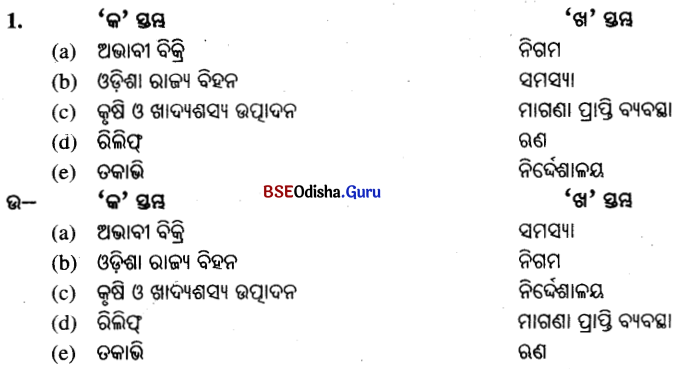
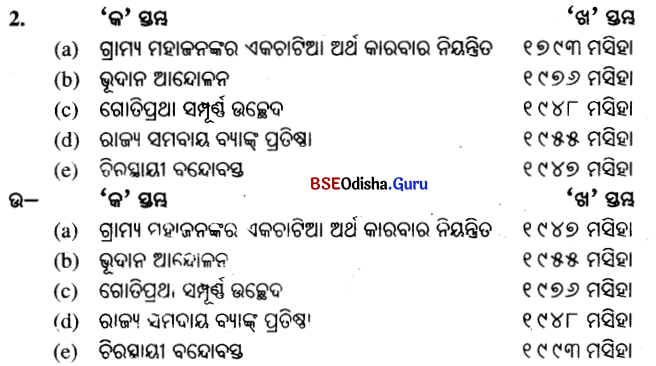
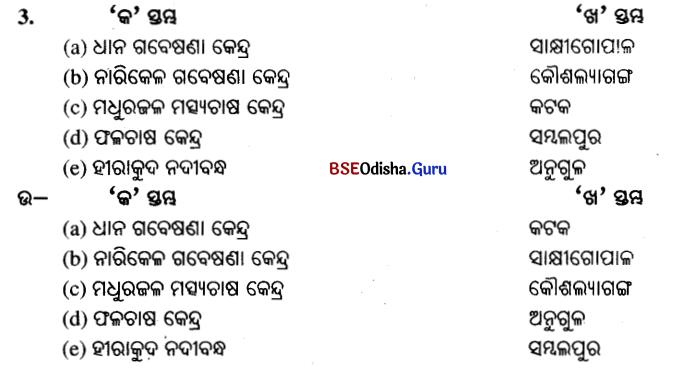
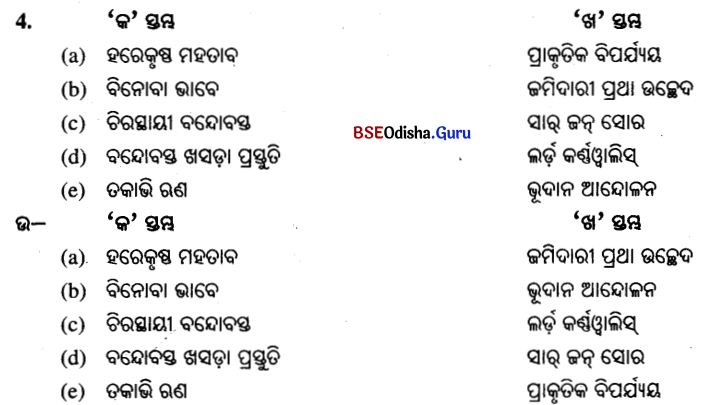
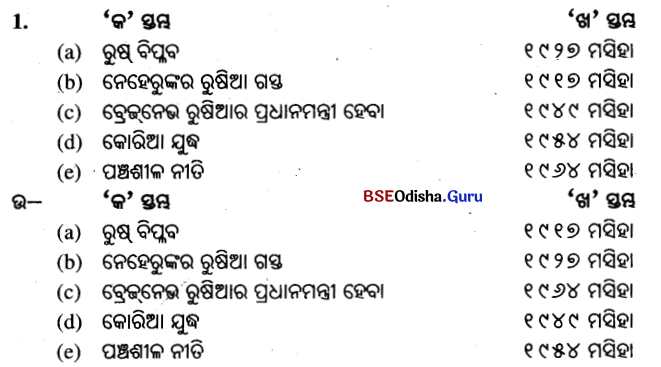
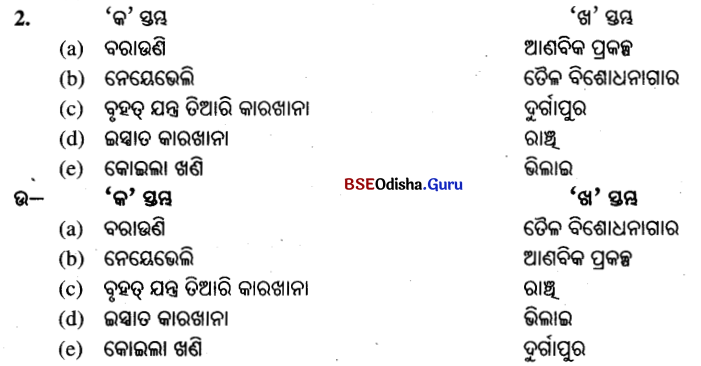
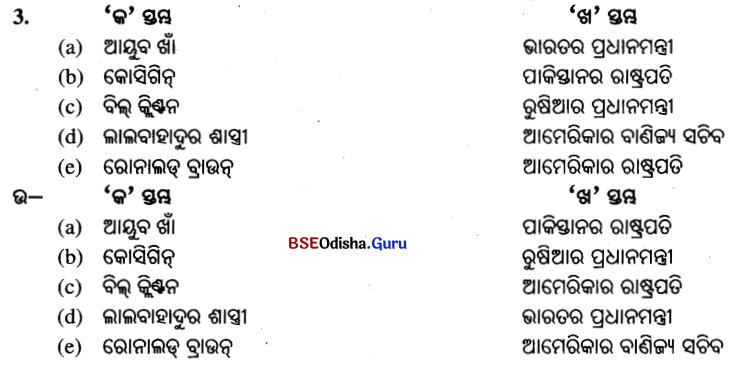
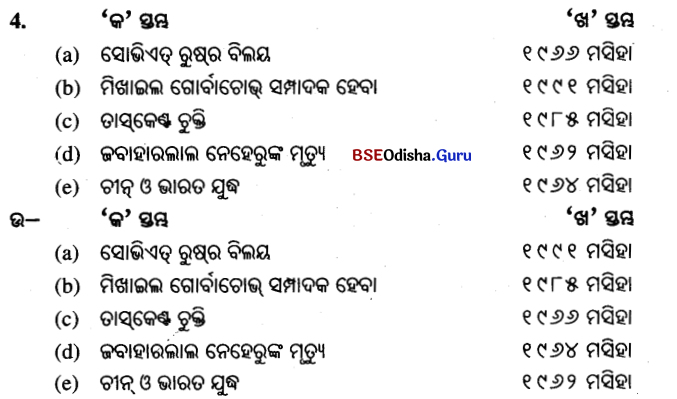
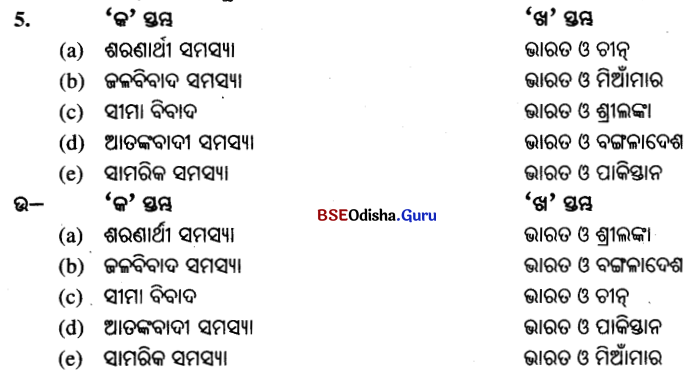
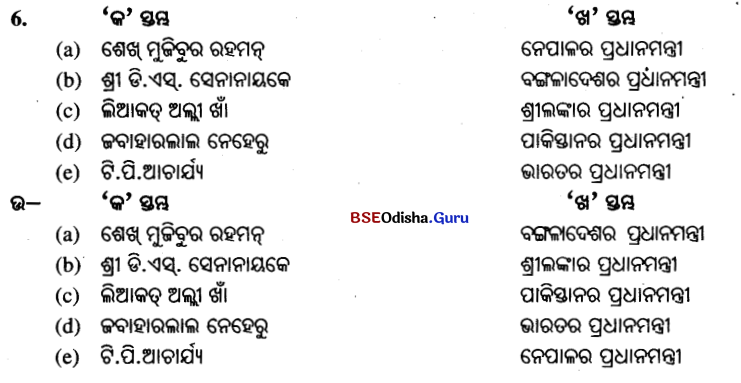
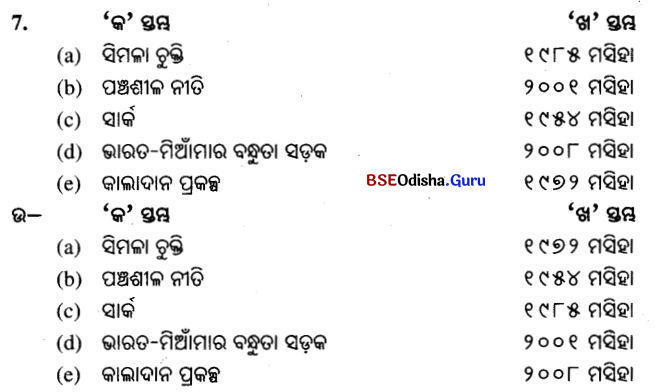
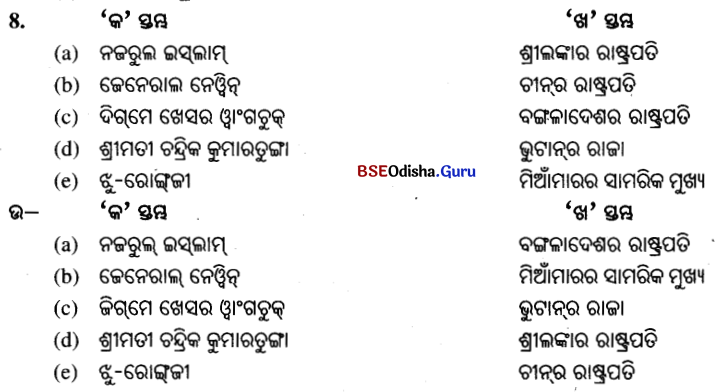
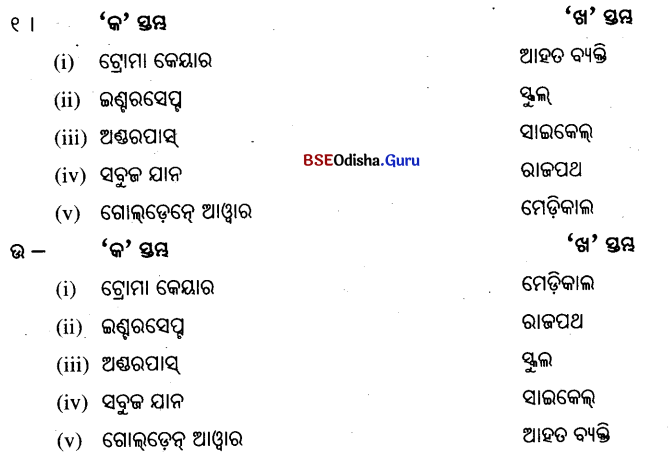
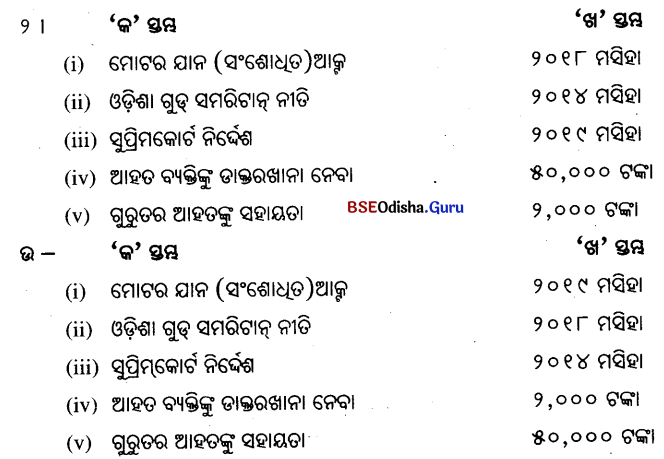
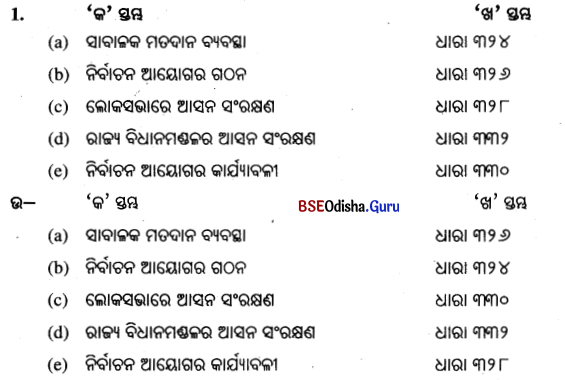
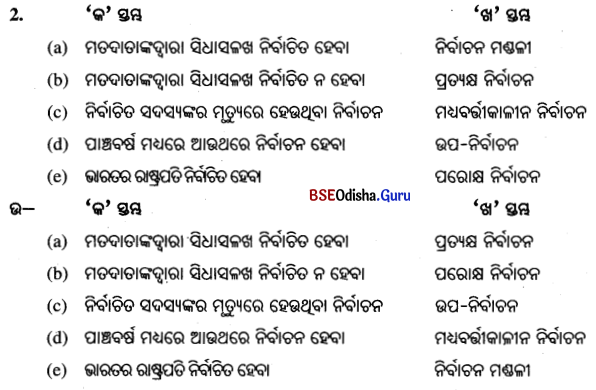

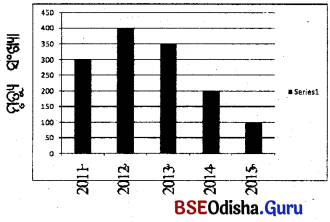


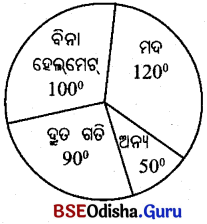

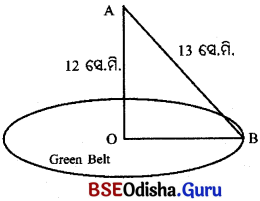
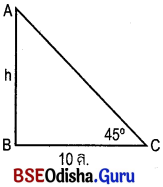
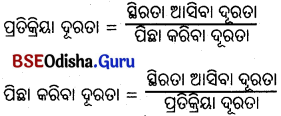


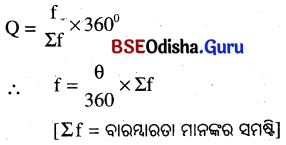
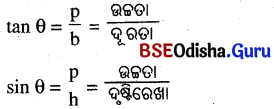
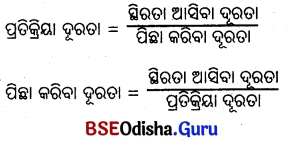
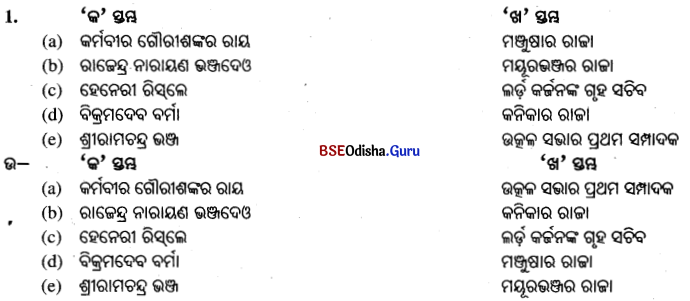
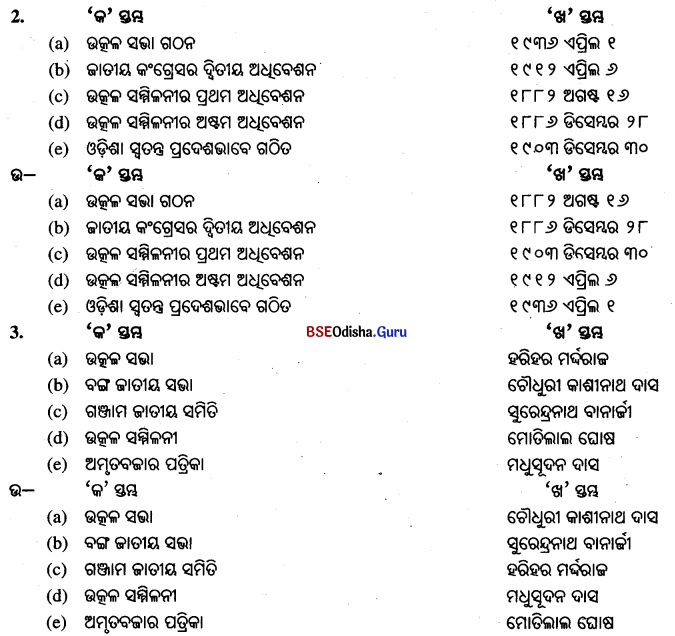
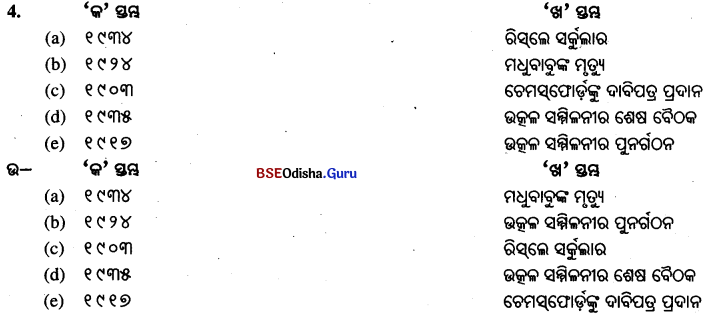

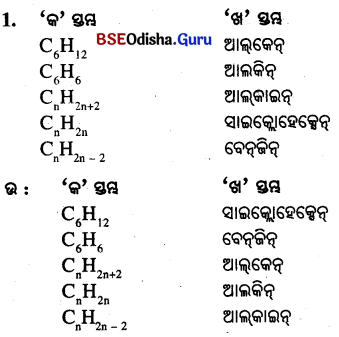
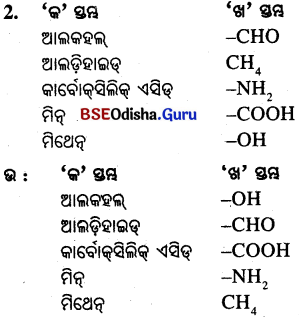
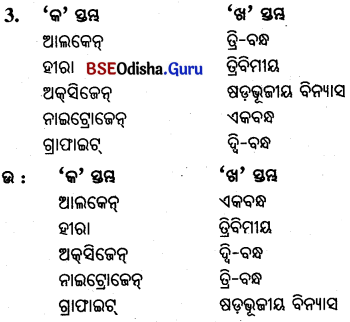
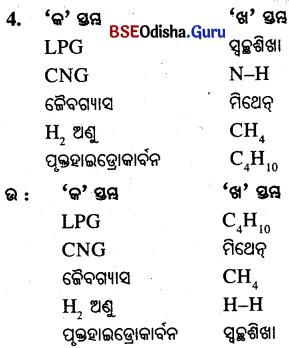

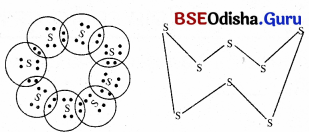
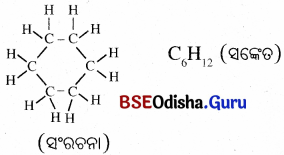
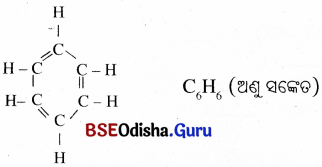
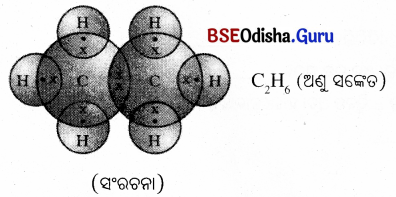
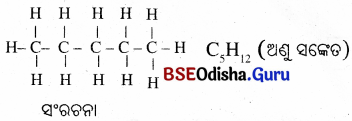
 : ………….
: ………….







